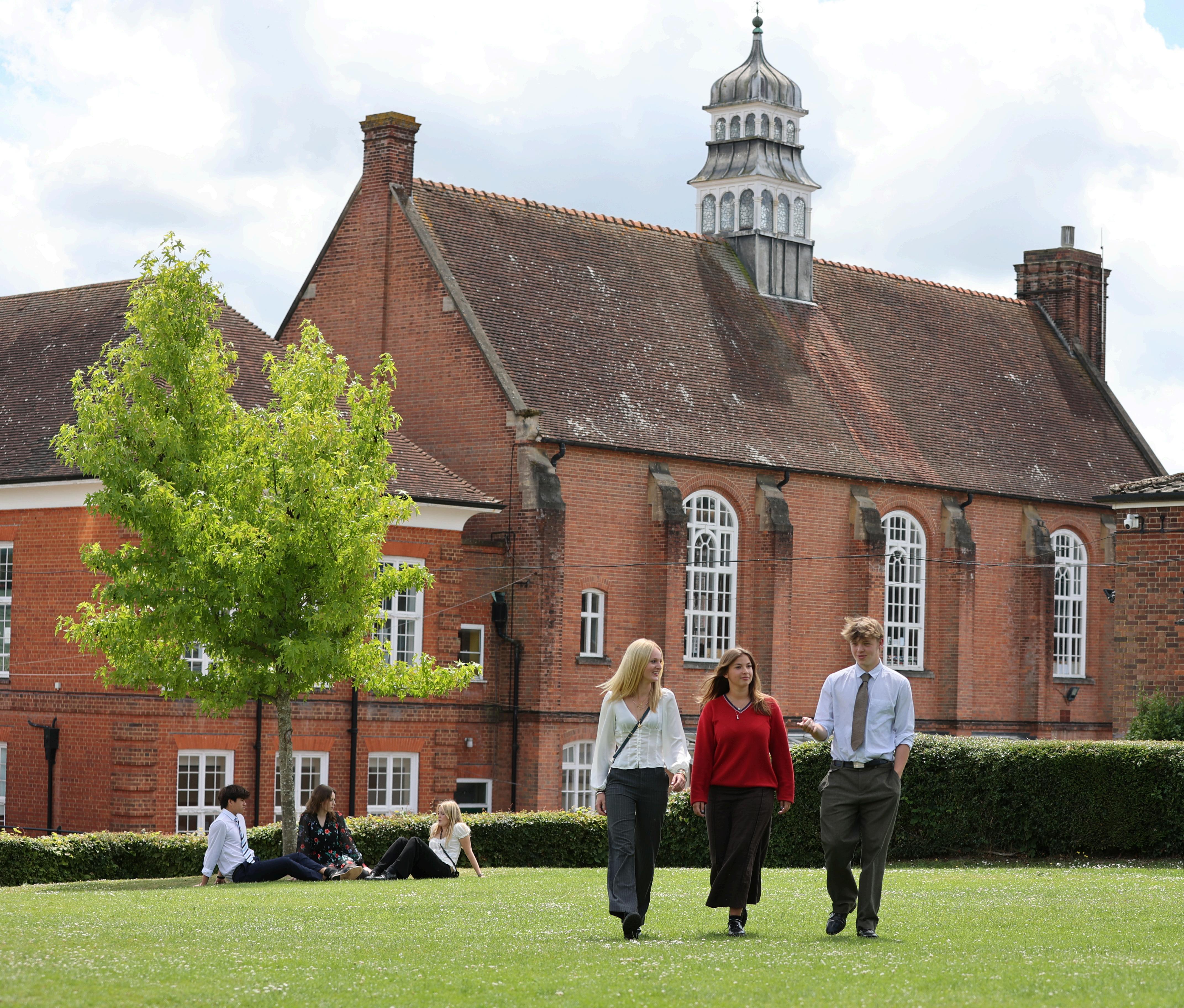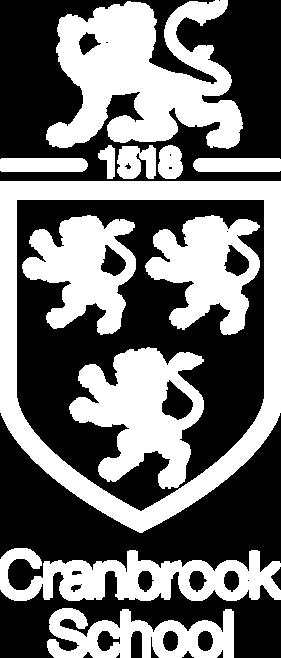
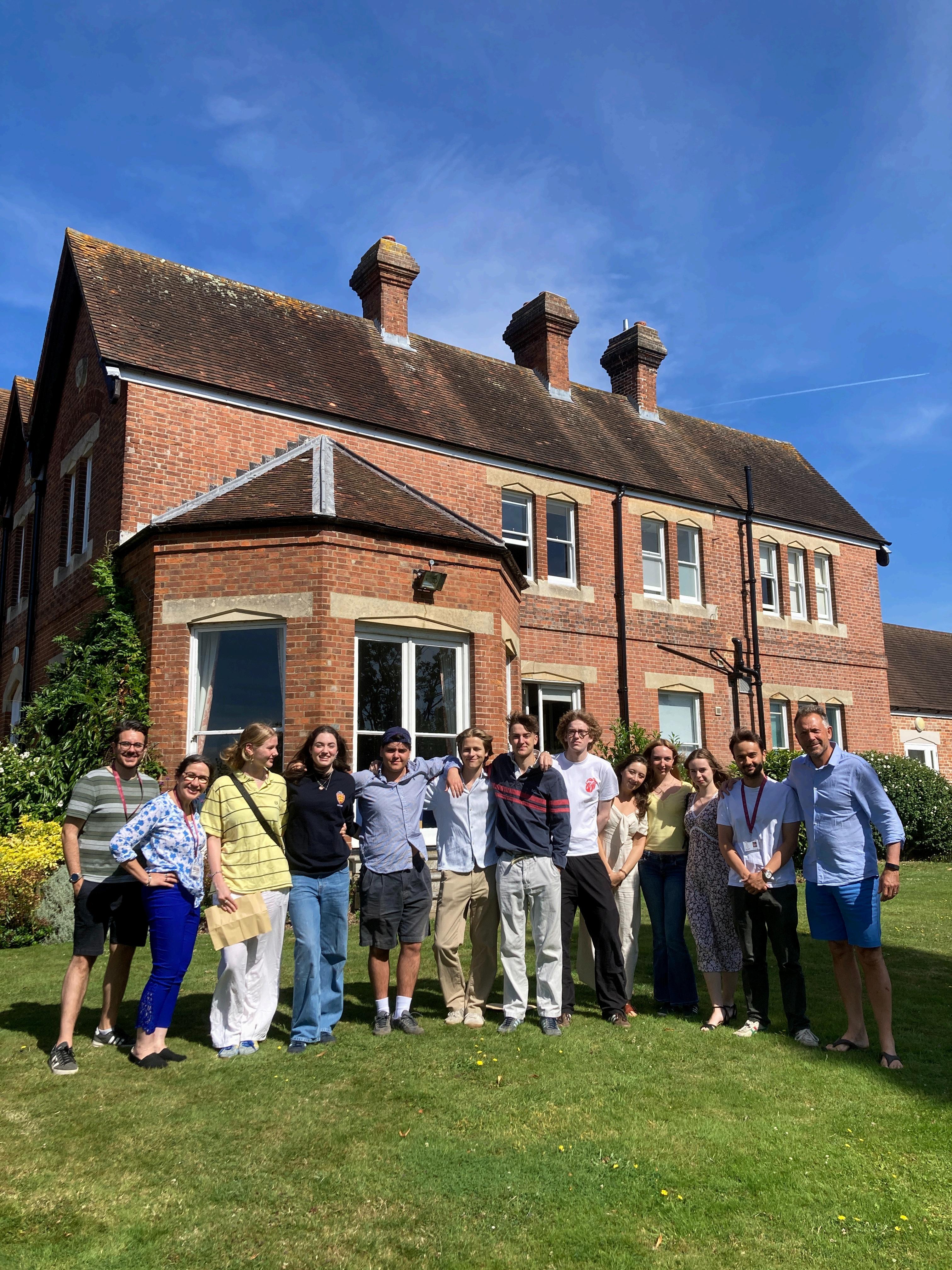
A unique state day and boarding grammar school for girls and boys in the heart of the Kent countryside. Founded 1518.
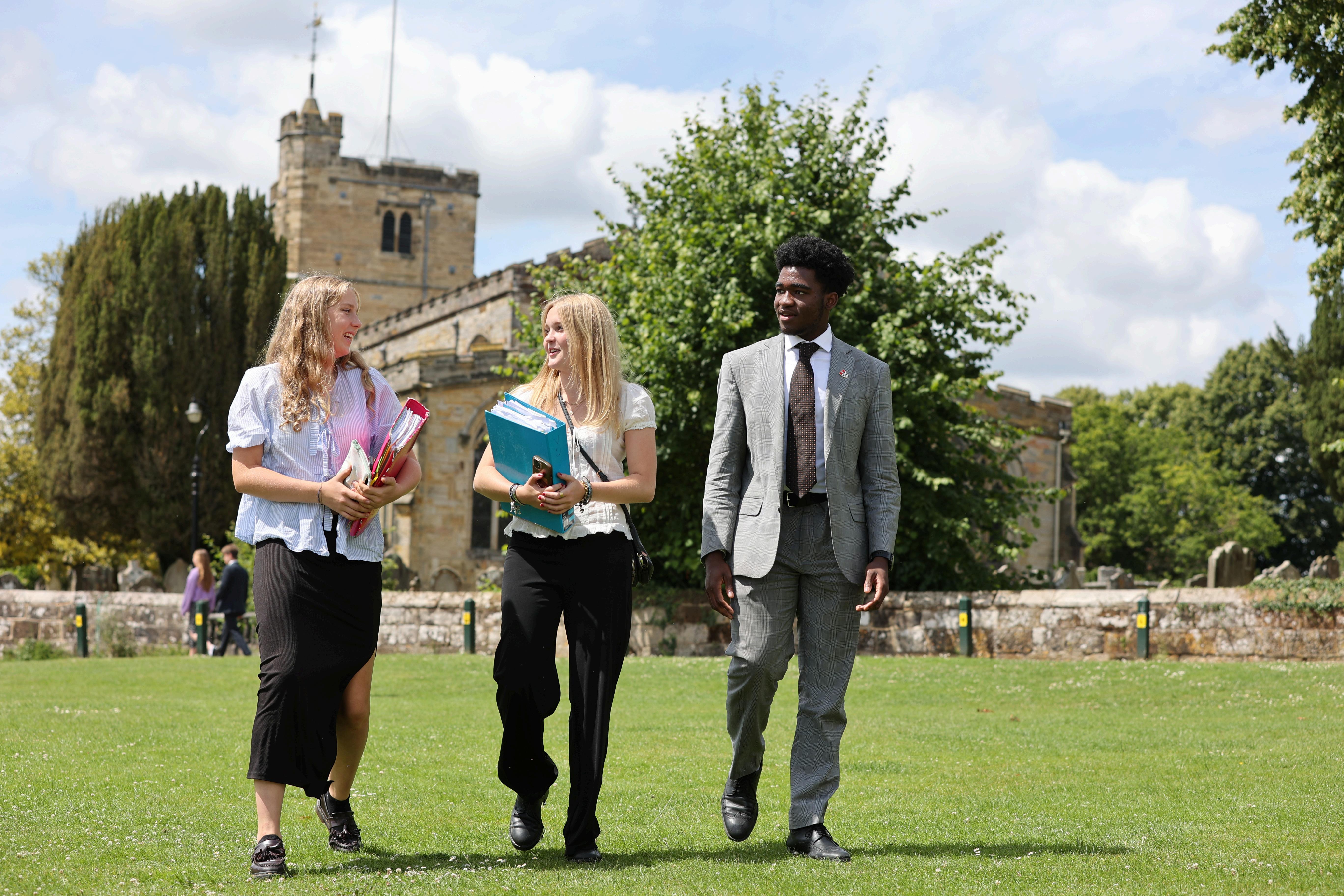




A unique state day and boarding grammar school for girls and boys in the heart of the Kent countryside. Founded 1518.


At Cranbrook School, we believe in the development of each student as a whole person. This has led us to create a Sixth Form Experience that creates not only academic learners, but bold leaders, curious thinkers and strong but supported students who are ready to head into the world and forge their own pathways Our curriculum is developed with this is mind and allows each student the opportunity to find and develop themselves.
Our Sixth Form consists of about 300 students, who study across the school site as well as in their dedicated 2 storey Sixth Form Centre On the top floor are silent and supervised study sessions every period of the week, where students can sign in to study in an individual work space or access a computer and printer. On the ground floor is a group work area and relaxation zone where students can work collaboratively, discuss ideas with other students or make use of a comfortable place to sit and relax between studying
Our curriculum is based on high academic expectations that are combined with a strong Personal Development curriculum and Pastoral Programme that includes Careers, Transferable Skills, Charity and Awareness, Leadership opportunities, Academic Mentoring, PSHE and Enrichment as well as Intervention Pathways for students who need more help and care beyond the classroom. We listen to our students, and respond to the needs they have in an ever-developing world
As part of the Sixth Form Team, we also have a dedicated UCAS Co-ordinator who supports our students to take the next steps at a range of universities and
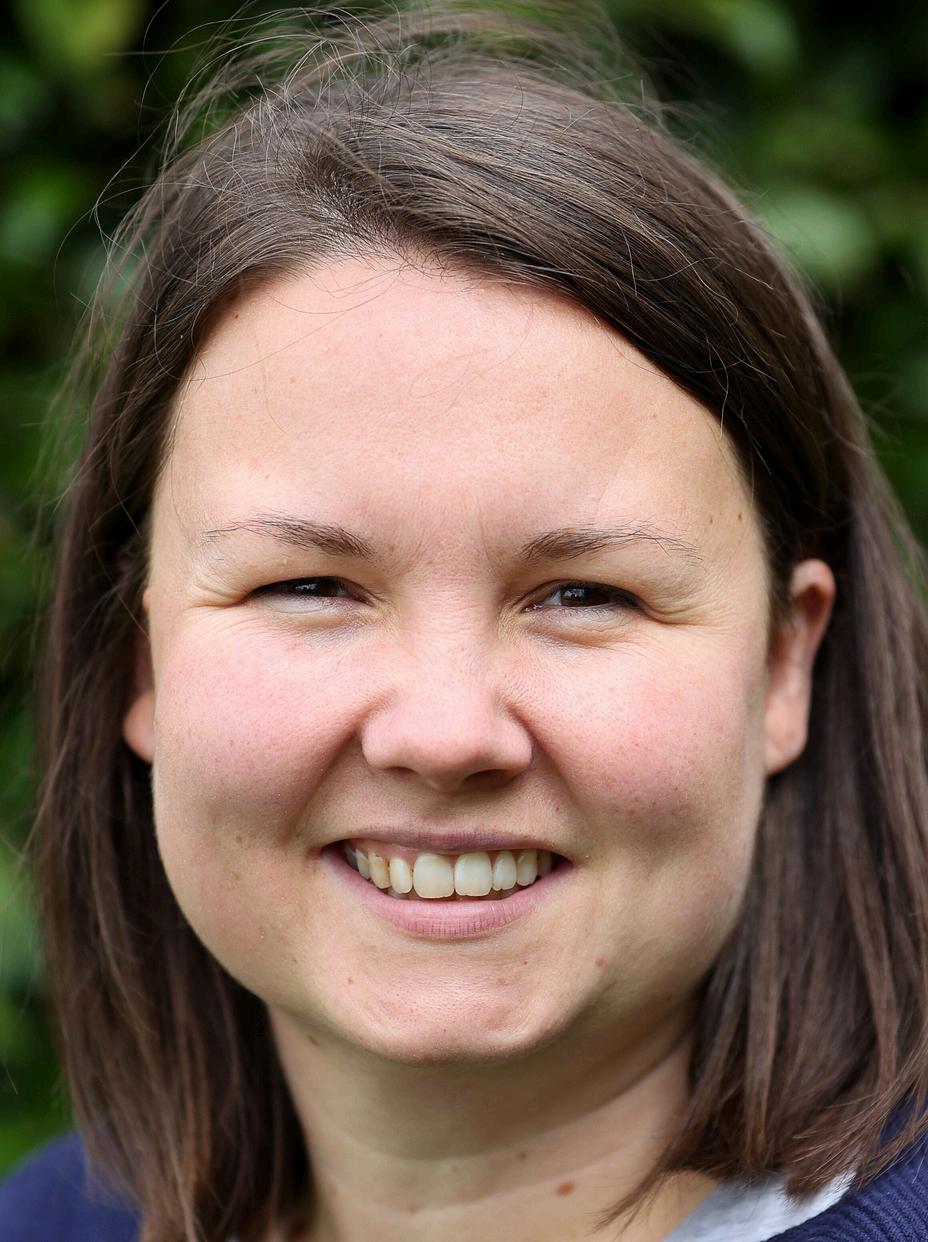

Chyna Hulland-Rumley Assistant Head, Director of Sixth Form
Academic Study is integral to life here at Cranbrook, we have high expectations of our students and our teachers deliver exciting fast-paced curriculums that develop understanding within and beyond the curriculum Our academic program includes 10 taught lessons per subject each fortnight plus two sessions of supervised study This fortnightly cycle puts the emphasis on teacher-led learning while allowing our students the structure to develop their own independent studying and progress. On top of the 36 periods of subject periods, which rises to 48 for our students who take a fourth A level, students have 9 periods a fortnight of Personal Development Lessons This complementary curriculum includes the following elements:
Enrichment: Students can choose to study an additional qualification such as the EPQ, the Sports Leaders qualification, or participate in our Cranbrook Courses programme, which includes courses in first aid, peer mentoring, finance, careers research, presentation and report writing skills, and much more
Games, Service and Creativity: The majority of our students undertake a sporting activity in this dedicated session each week, with sports on offer that include rugby, hockey, cricket, football, swimming, using our onsite gym, badminton, volleyball, squash, cross-country, dance, strength and conditioning, yoga, and much more Options are varied and respond to student interests as well as staff expertise In addition to sporting options, a number of our students elect to use this time for service and help out in our library, support younger students, work with staff to develop department areas, or take placements at local primary schools and elderly care groups Some students use this time to express creativity by bringing art around the school, developing performances in our Performing Arts Centre, or learning another language off-piste This is an amazing time where students can find something that excites them outside of their three main A levels.
PSHE: As well as covering PSHE in lessons, our students have one dedicated lesson a fortnight where they study a bespoke curriculum, including topics on health, staying safe beyond school and careers
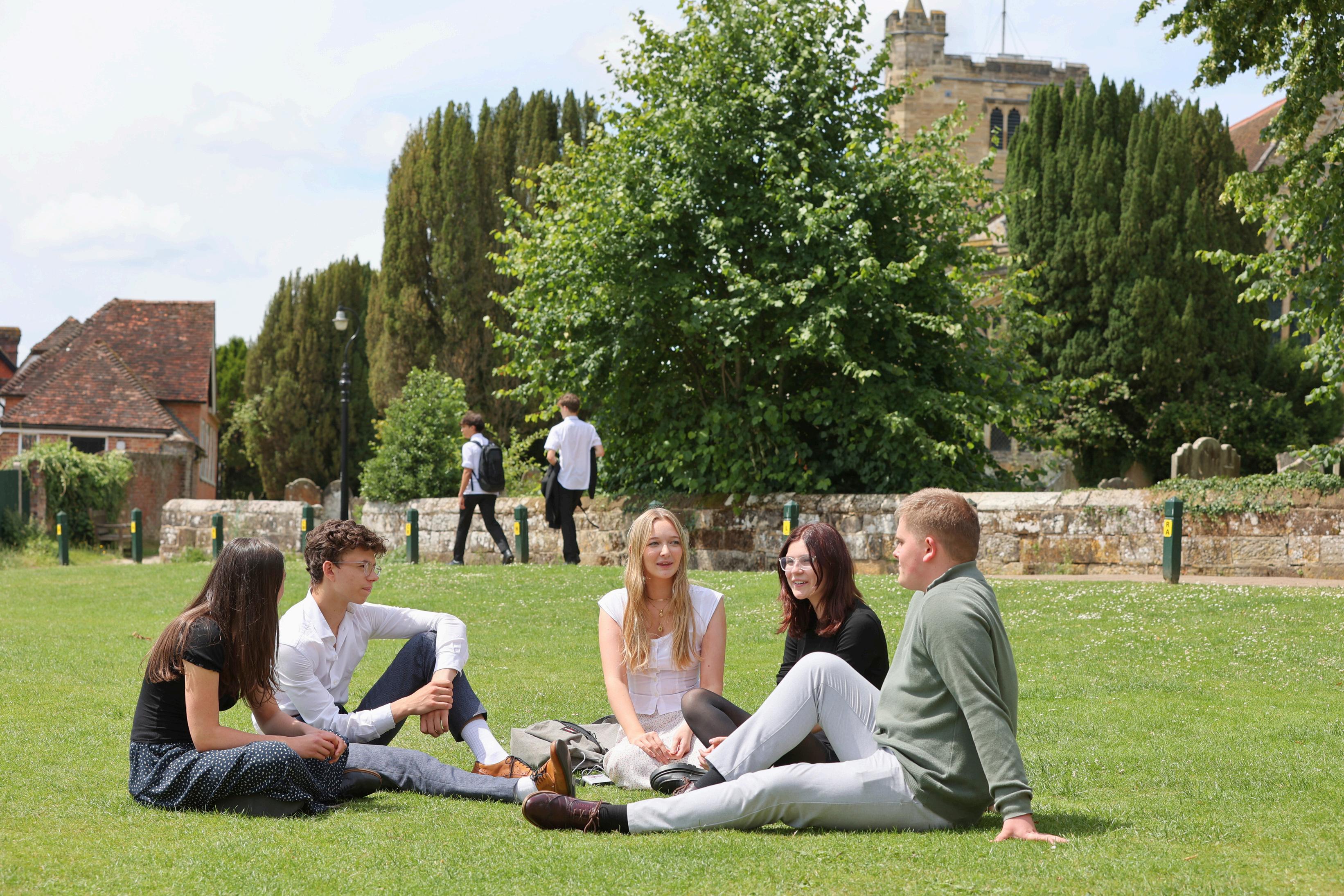
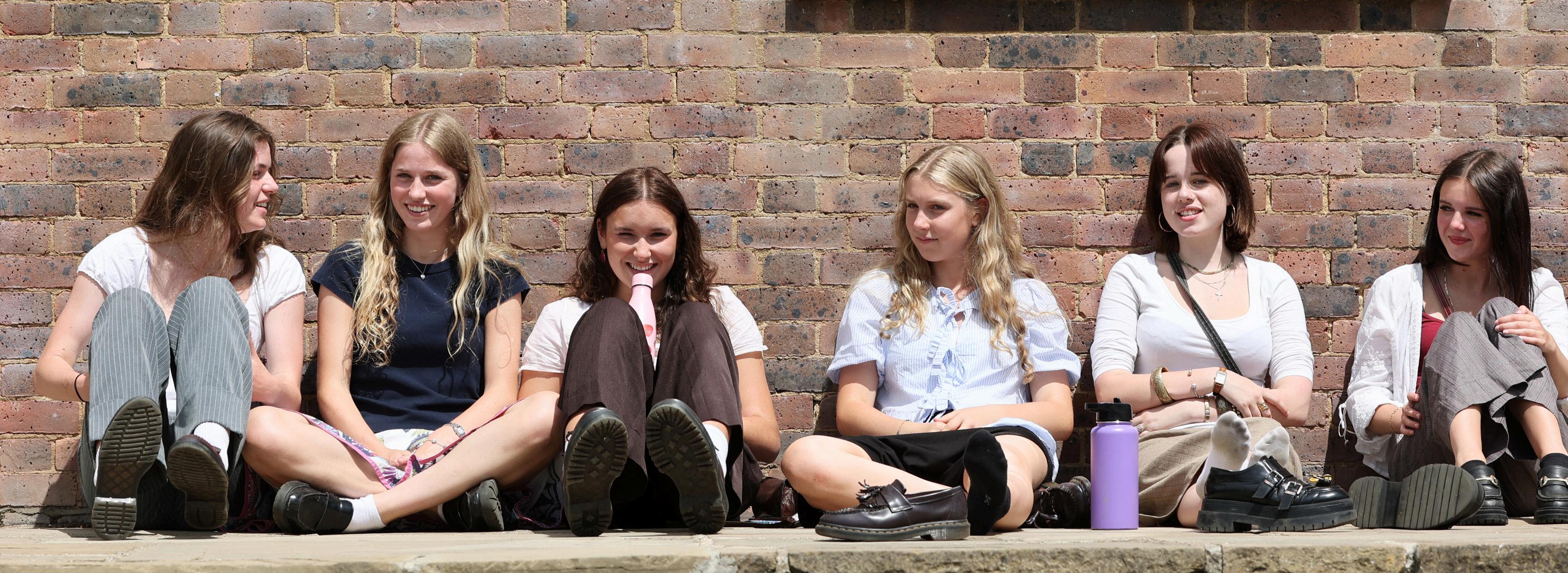
At Cranbrook, we understand that students cannot flourish academically unless they are supported pastorally, which is why we have a strong pastoral programme based on five mixed houses that include both day and boarding students. Sixth Form students meet in their tutor groups four days a week, following a programme that includes a weekly assembly, PSHE sessions, academic mentoring, integration and social activities and student voice opportunities This is an important time for students to touch base with their tutor, who serves as their daily point of contact for any concerns
Beyond the tutor group, students have access to Place2Be and our outstanding safeguarding team, who work with students in need and their families We also have a team of student listeners and each house has additional pastoral support provided by two heads of house
Students at Cranbrook are well supported to be happy, healthy and aware of where to find help each day
Applications will be considered on the following basis:
Applications from external candidates must be made between 1st November - 15th December 2025
Current Year 11 students at Cranbrook School, must complete their application for a place in the sixth form by 31st January 2026 Once the application is received, the Registrar will obtain the predicted GCSE or equivalent (in the view of the School) grades by contacting the candidate’s current school Candidates must study a minimum of 3 A level subjects as delivered by the school, as well as the Cranbrook Diploma;
Candidates are required to obtain a minimum of 35 points from their best six GCSE subjects or equivalent (in the view of the School) Points will be on a 1-9 scale, where Grade 1=1 and 2=2 etc
Candidates must obtain at least a Grade 5 at GCSE or equivalent (in the view of the School) in Maths and in either English Language or English Literature.
Candidates must meet the specific requirements for each A level course they wish to study as published on the Cranbrook School website and in the 2026 Sixth Form Prospectus Candidates will be prioritised in order of their predicted GCSE (or equivalent in the view of the School) total points score.
Where actual GCSE results are equal, external day candidates will be prioritised by distance from their permanent principal private residence to school
If two candidates cannot be separated then the names will be issued a number and drawn randomly to decide which child should be given the place. This process will be supervised by an independent person, in accordance with the Schools Admission Code Candidates applying outside of their chronological age group will be considered on an individual case basis by the Governors’ Admissions Committee
Conditional offers are made on the basis that the minimum entry requirements are achieved in the GCSE exams or equivalent (in the view of the School) prior to entry
Unless specified in the subject descriptions, to study an A level subject, a student must always have a minimum of a Grade 6 at GCSE in that subject (or equivalent) However, as there is a large jump from GCSE level study to A level and some students who achieve a Grade 6 at GCSE may still find the A level difficult, we would encourage students to aim for higher than a grade 6 in their chosen subjects.
Beyond A levels, our students take part in the wider Cranbrook Diploma that builds up skills in 6 key areas. Upon completion, students are awarded with a final certificate of achievement at our annual Speech Day The Elements of the Cranbrook Diploma are:
1.Achievement of 3 or 4 Academic A levels
2 Completion of an Independent Research Project (c 1000 words) on a topic of their choice which relates to their future career
3 Delivery of a 5-minute presentation to an audience on the process and findings of their research project
4.Involvement in extracurricular activities for at least 2 terms of the year.
5 Participation in a service element including leading an extracurricular activity or supporting other students This can be outside of school
6 Engagement in the careers programme evidenced by attendance at careers talks, university open days, our annual careers fair or careers insights sessions.
Over the past years we have been impressed with an amazing standard of research and presentations that our students deliver and our destination data is evidence that students are successfully engaging with careers and
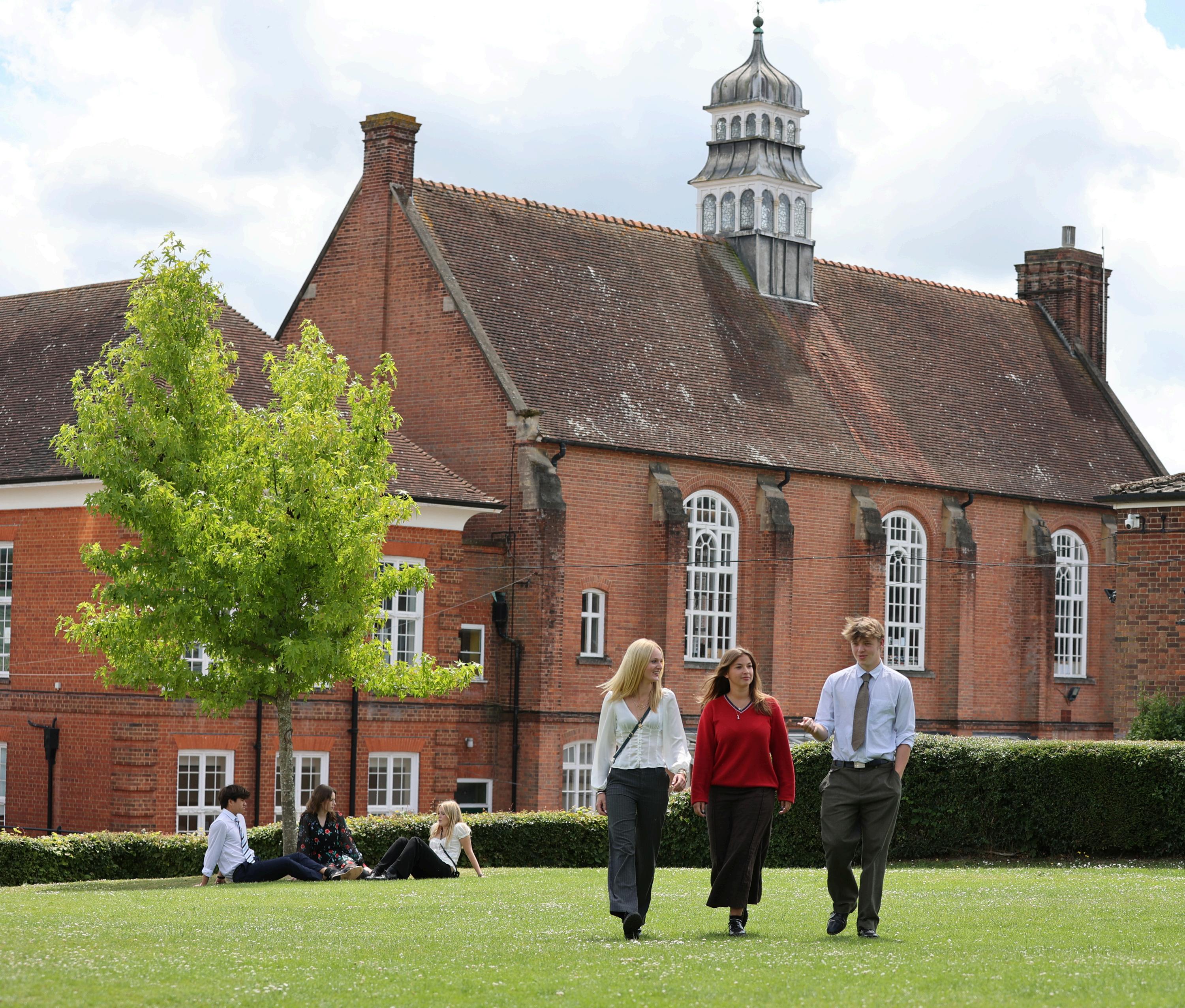
At Cranbrook School, we pride ourselves on having a broad and varied co-curricular offering that caters to our students' interests and develops them outside of academic lessons We have over 40 different clubs and societies running each week, including a very well-attended CCF, DofE up to Gold Award and clubs such as debating, photography, Warhammer, mythology, practical astronomy, chess, LGBTQ+, gardening, cooking, choir and many more. The Sports department runs practices and clubs in a wide range of sports after school each day and our outstanding Performing Arts department stages a main school play each year that rivals the West End Sixth Form students are encouraged to get involved with as much as they can, with many taking on leadership roles as they move into Year 13
Academic enrichment is at the heart of what we do Departments offer exciting and engaging trips to immerse students in their subjects, revision sessions to ensure full understanding and enrichment opportunities such as guest speakers, competitions and Olympiads to inspire enthusiasm for the subjects they study For students with high aspirations, we have a dedicated Competition University Support Programme (CUSP), coordinated by our UCAS advisor and Head of Academic Enrichment and Extension
Cranbrook School’s boarding programme offers a unique environment for Sixth Formers, combining academic challenge together with a supportive community in the heart of Kent As students prepare for higher education, they benefit from three or four A levels taught by expert staff who aim to develop confident and independent thinkers Cranbrook’s nurturing approach goes beyond academics, ensuring mental well-being and life skills are priorities through a range of extracurricular and leadership opportunities.
The boarding experience is integral to Cranbrook's identity, with five senior houses creating a "home away from home " Sixth Form boarders have more independent living arrangements, while still being supported by resident House Parents, tutors and matrons. The strong community ethos, coupled with established house traditions and inter-house competitions, provides a vibrant social environment that fosters lasting friendships and personal growth, creating the perfect stepping stone to becoming independent young adults ready to thrive at the next stage, whether that is at university, other further education establishments or commencing work
Situated on a beautiful 75-acre campus, Cranbrook offers exceptional facilities with the flexibility of being able to go home any weekend, allowing Sixth Formers to balance their studies with family commitments The dedicated Sixth Form Centre serves as a hub for social and academic life, while weekend activities range from local outings to trips further afield. Access to sports facilities, supervised study sessions and evening support ensure students make the most of their time both in and out of the classroom
Student welfare is paramount, with a comprehensive approach to health, nutrition and personalised pastoral care. Regular communication with parents ensures that students’ progress is closely monitored, while a dedicated catering team provides nutritious meals daily Cranbrook’s Sixth Form boarding experience equips students with not only academic qualifications but also the character and skills needed for future success
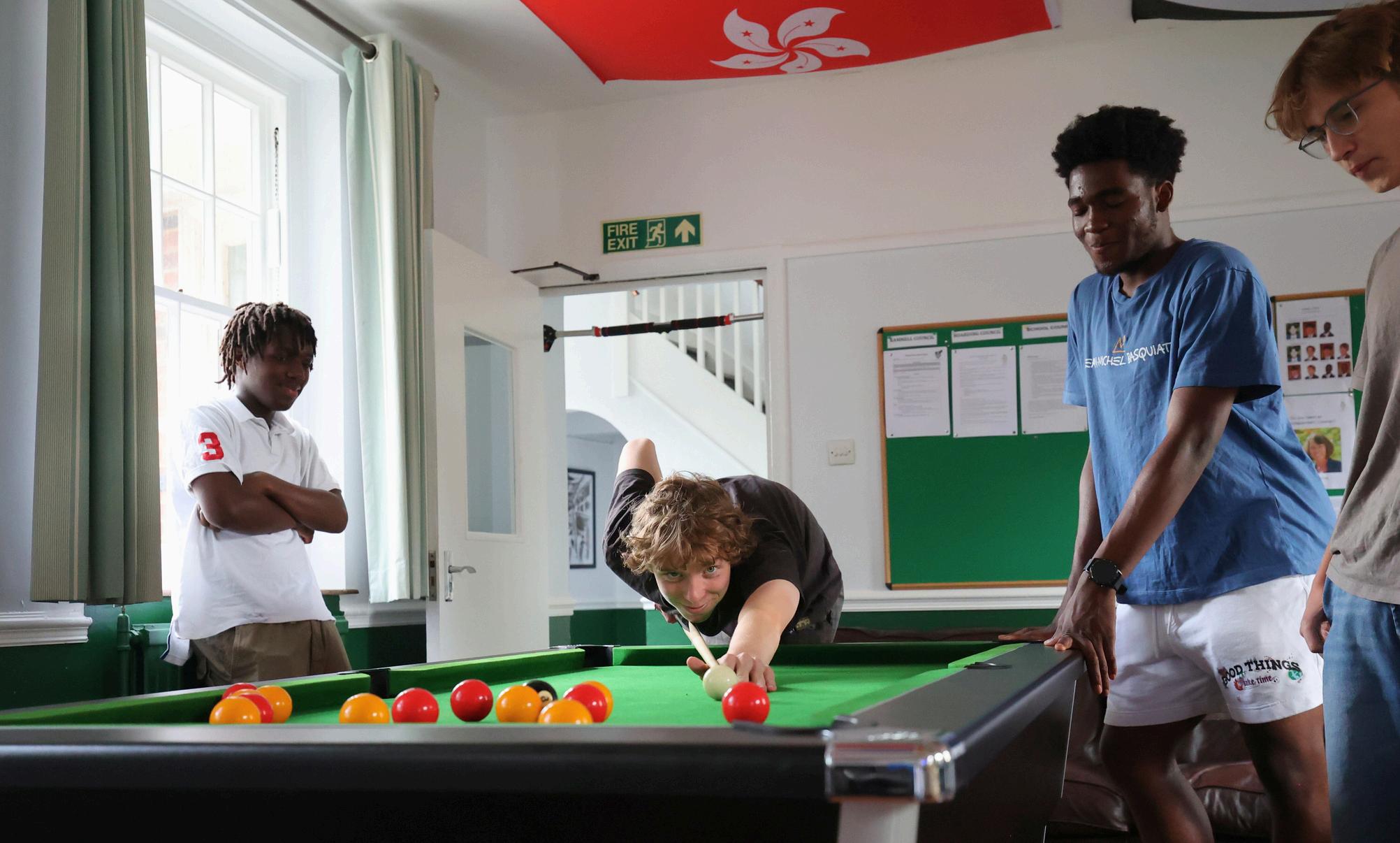

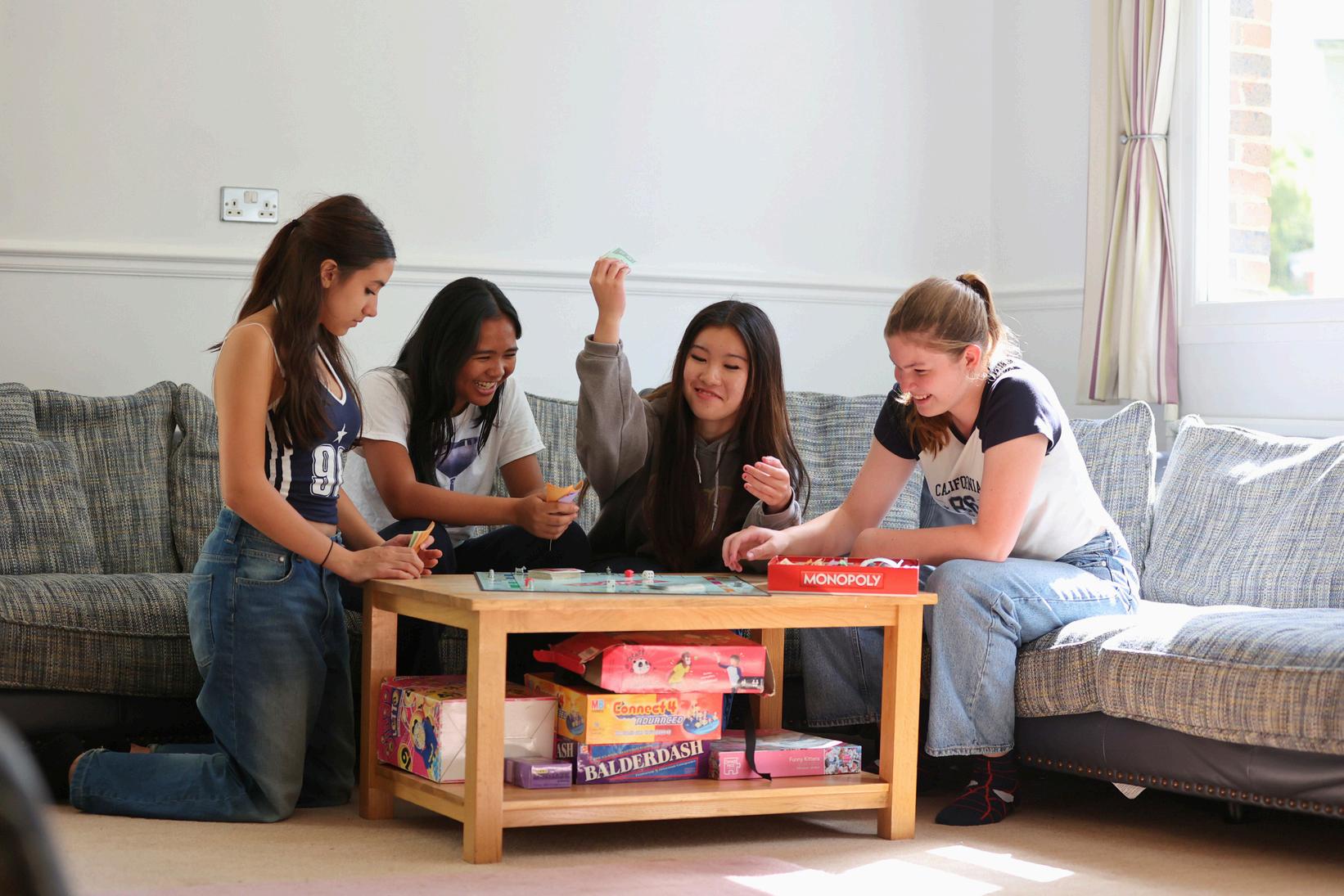
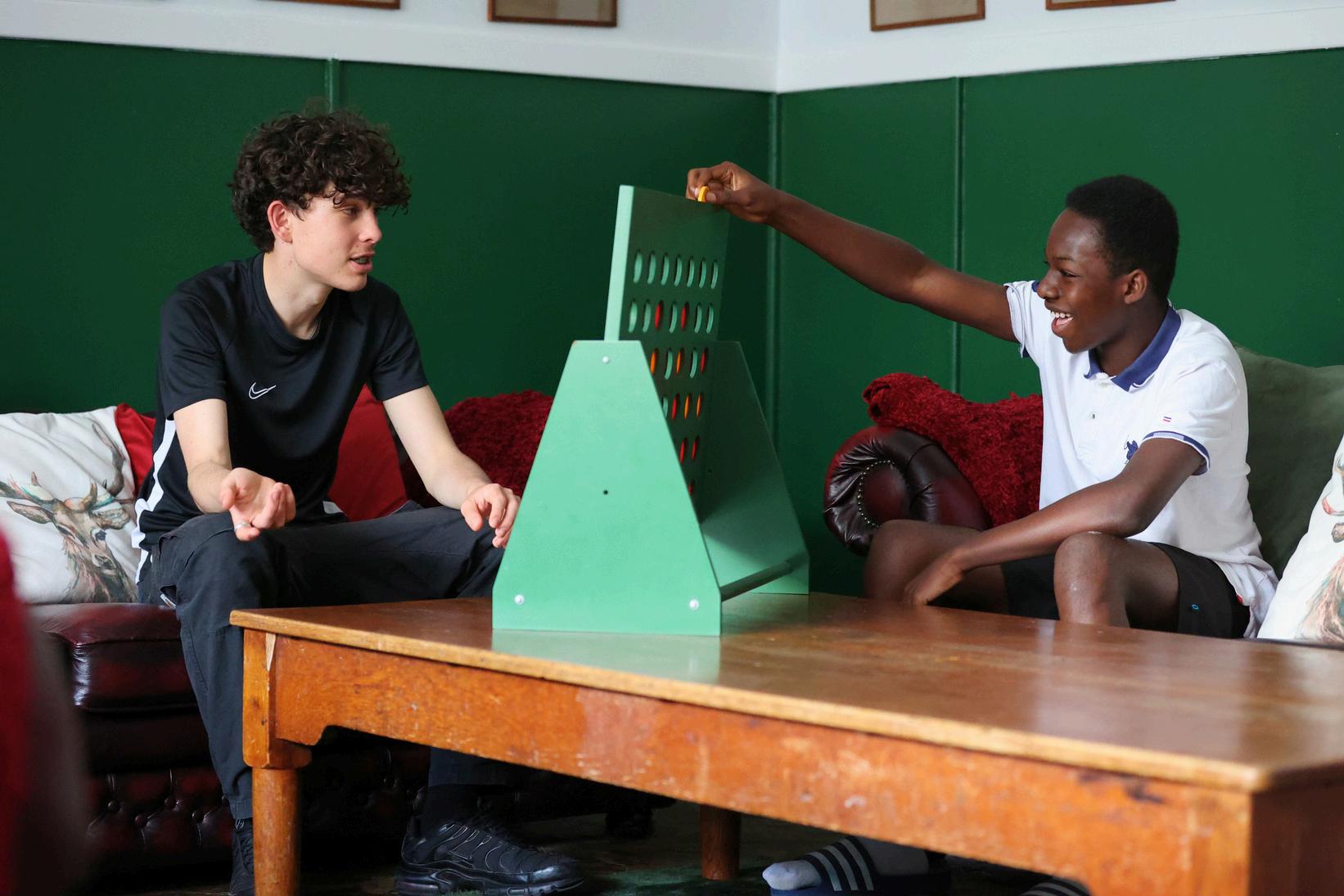
A level Business is taught using a dynamic and inclusive teaching style that is designed to stretch most able while supporting the whole cohort. As an A level returning to the school following a short period of absence, Business will once again give Cranbrook students the choice between studying something more heavily theoretical, namely Economics, and something inherently more practical The A level in Business gives students the opportunity to examine and analyse how businesses both large and small are managed in a range of contexts.
The aims and objectives of the GCE A level in Business are to enable students to: develop an enthusiasm for studying business, gain a holistic understanding of business in a range of contexts and develop a critical understanding of organisations and their ability to meet society’s needs and wants We also consider enterprising and creative approaches to business opportunities, problems and issues faced and the ethical dilemmas and responsibilities faced by organisations and individuals Lastly, students will acquire a range of relevant business and generic skills, including decision making, problem solving, the challenging of assumptions and critical analysis while also applying numerical skills in a range of business contexts
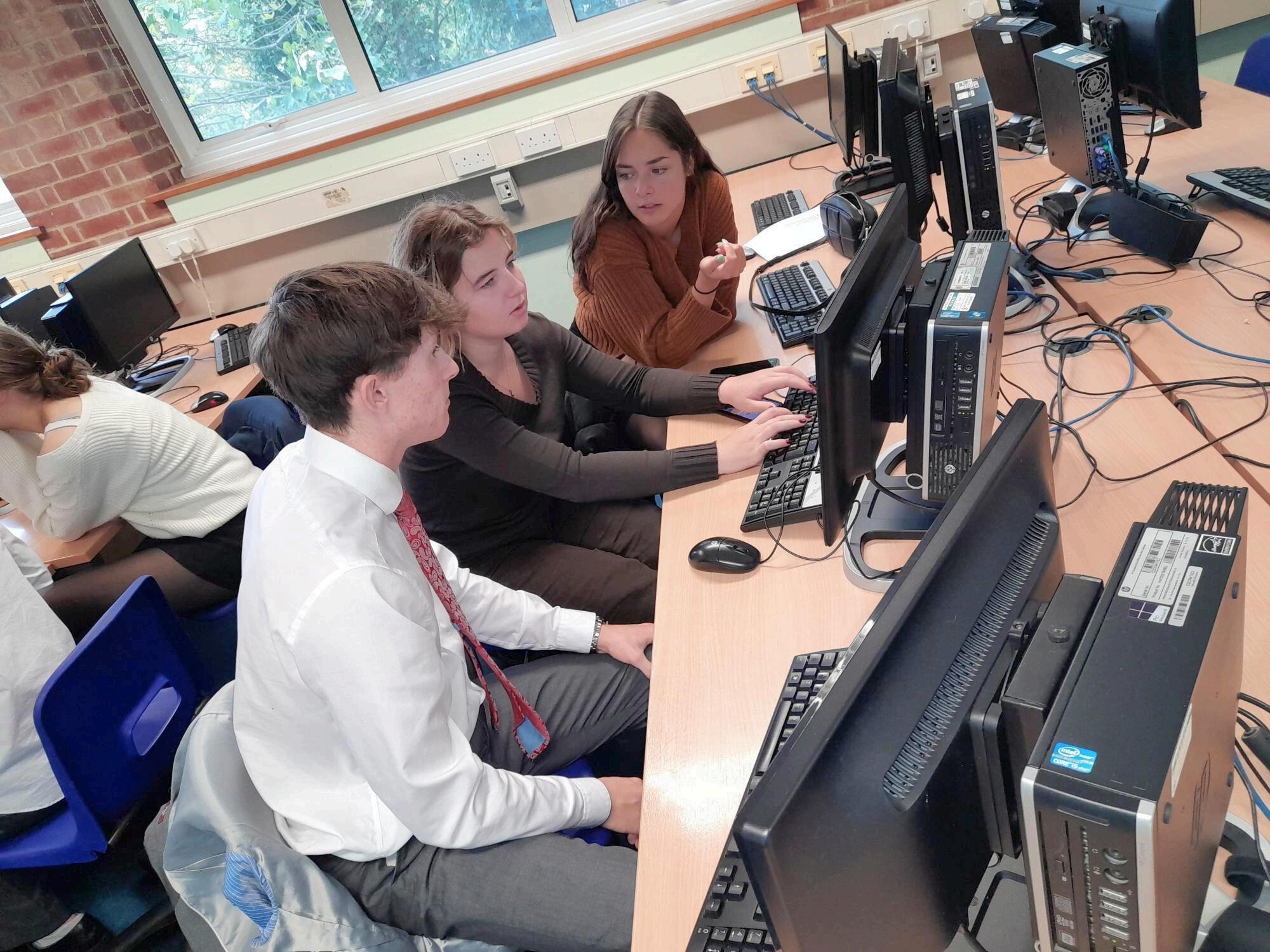
Minimum Grade 6 in GCSE Maths and English
The Pearson Edexcel Level 3 Advanced GCE in Business is structured into four themes and consists of three externally examined papers. Students are encouraged to use an enquiring, critical and thoughtful approach to the study of business, to understand that business behaviour can be studied from a range of perspectives and to challenge assumptions
Theme 1: Marketing and people
Students will develop an understanding of: meeting customer needs the market marketing mix and strategy managing people entrepreneurs and leaders
Theme 3: Business decisions and strategy
This theme develops the concepts introduced in Theme 2; business objectives and strategy business growth decision-making techniques influences on business decisions assessing competitiveness managing change.
Progression Opportunities
Theme 2: Managing business activities
Students will develop an understanding of: raising finance financial planning managing finance resource management external influences
Theme 4: Global business
This theme develops the concepts introduced in Theme 1; globalisation global markets and business expansion global marketing global industries and companies (multinational corporations)
This course could lead onto higher education or apprenticeship pathways in areas of Economics, Business Studies, Accounting, Marketing or more general higher education courses With further training, you could open doors to careers in Economics, Business, Marketing, Finance and Accounting, human resources and public relations
Course Name: GCE Business Studies Course Number: 9BS0
A level Economics seeks to develop in its students: an understanding of the subject with strength and depth across both micro and macro theory; an understanding of economic concepts and theories through a critical consideration of current economic issues, problems and institutions that affect everyday life.
Students of Economics, which is an applied science, must be able to think critically and use theory taught to analyse real world situations. They will develop an understanding of the benefits of markets and the reasons why they may fail; understand the implications of market failure for individuals, firms and government, and recognise the possibility of government failure; develop analytical and quantitative skills in selecting, interpreting and using appropriate data from a range of sources, to solve applied economic problems; build application, analysis and evaluative skills in line with the assessment and marking criteria; develop a critical approach to economic line of enquiry; understand microeconomic and macroeconomic market models; use the models to explore current economic behaviour; make causal connections; and develop an understanding of how the models shed light on the economy as a whole
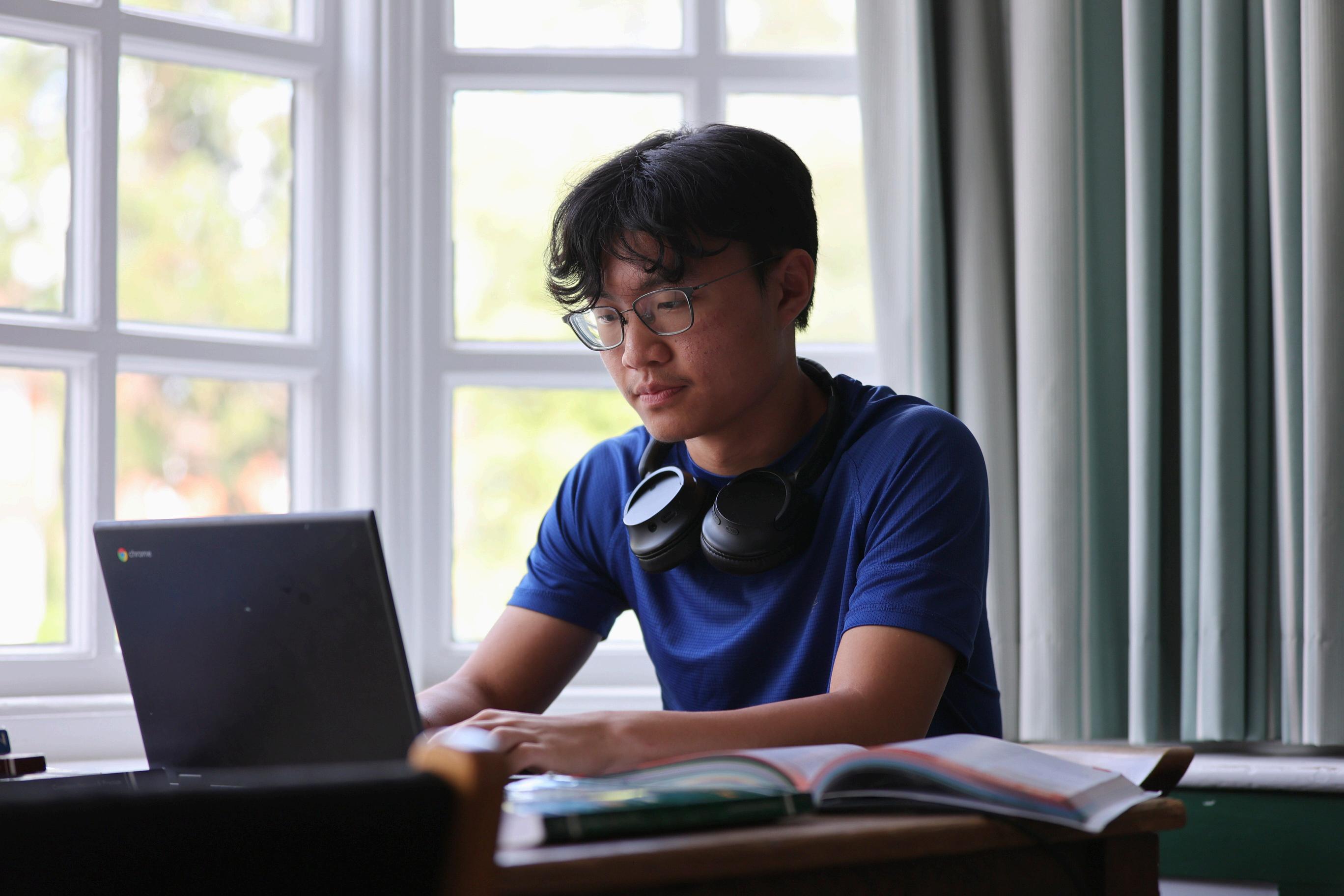
Minimum Grade 6 in GCSE Maths and English
More generic skills developed through the study of Economics include, resilience for coping with extended pieces of writing and applying these taught skills to a range of different source materials and question types Students work within a ‘final assessment’ context of three, two-hour papers at the end of two years Equipping students with the resilience required to write in timed conditions where time management and planning is essential
Theme 1: Introduction to markets
The nature of economics
How markets work
Market failure
Government intervention
Theme 3: Business behaviour and the labour market
Business growth and objectives
Revenues, costs and profits
Market structure
The labour market
Theme 2: The UK economy
Measures of economic performance
Aggregate demand
Aggregate supply
National income
Economic growth
Macroeconomic objectives and policy
Theme 4: A global perspective
International economics
Poverty and inequality
Emerging and developing economies
The financial sector
Role of the state in the macroeconomy
This course could lead onto higher education in areas of Economics, Business Studies, Accounting, Marketing or more general higher education courses With further training, you could open doors to careers in Economics, Business, Marketing, Finance and Accounting, human resources and public relations You could also go straight into a job as the GCE is a recognised qualification that could help you do a trainee management course within a company to gain the skills, understanding and experience that they require so you can progress to working at management level Economics is the fastest growing A Level in England currently and is becoming increasingly recognised and respected by Universities It is a rigorous course of study and is ideally suited to individuals with a thirst to understand the theoretical economics construct of the world in which we live.
Course Name: Pearson
The Art course at Cranbrook School has a proven track record for producing outstanding Art, as well as a reputation for pupils securing places at the finest Art Colleges in England The course has been thoughtfully designed to challenge students’ perceptions of Art in its broadest sense and to build their confidence as an Artist. Pupils are introduced to key practitioners, both historical and contemporary, in order to gain a classical understanding from which to create meaning Stimuli for pupils’ artistic responses are gathered from independent research, which is integral to being a successful art student All pupils receive a bespoke pathway that encourages them to take creative risks and there are no restrictions on what students can explore as a theme in their Personal Investigation The aim is for students to respond in a highly personal way and to be secure in their understanding Workshops and gallery visits support Pupil’s study of Art over the two years of the course.
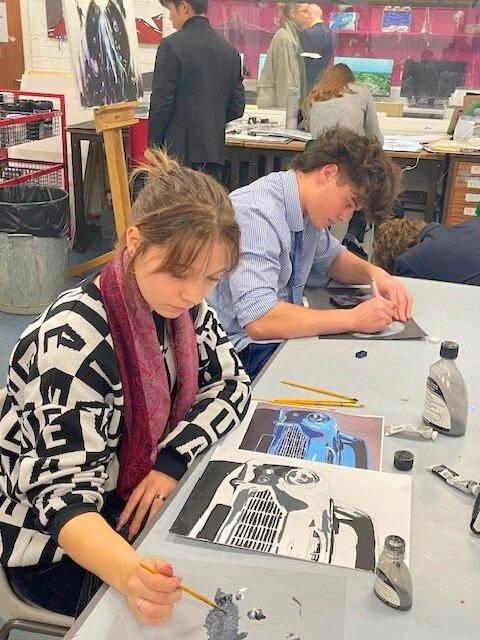
Minimum Grade 6 in GCSE Art
Component 1: Personal Investigation
60% of the total qualification
This component allows students opportunities to generate and develop ideas, research primary and contextual sources, record practical and written observations, experiment with media and processes and refine ideas towards producing personal resolved outcome(s)
Component 2: Externally Set Assignment: 40% of the total qualification
This component allows students opportunities to generate and develop ideas, research primary and contextual sources, record practical and written observations, experiment with media and processes and refine ideas towards producing personal resolved outcome(s) in response to an externally set theme
Fine Art allows students to specialise in any area of Fine Art practice – it can be a very broad subject that allows pupils to develop their own artistic practice and experiment with different media and materials Pupils can express themselves in a very board range of materials and mediums We are exceptionally well positioned in Art with our own permanent designated Gallery space that is truly inspirational for the A Level pupils, because of this the scale and ambition is unprecedented in a state school
Progression Opportunities
According to Government figures in 2022, the creative industries contributed £124bn to the UK economy and is ‘growing at twice the rate of the economy’ This is testament to the strong tradition we as a nation have of innovation and creativity There are realistic opportunities to pursue careers in the creative industry if students wish to do so Art supports student’s ability to think creatively and solve problems imaginatively Art is recognised by all Universities and will support you in your application even if you do not intend to study art after A Level
A level Drama and Theatre offers students the opportunity to explore drama as a practical art form, in which ideas and meaning are communicated to an audience through choices of form, style and convention
Students will:
create, perform and respond to drama and theatre develop the creativity and independence to become effective theatre makers explore a range of theatrical practitioners study a range of live and digital recorded live theatre (A level students should participate in one live theatre visit through the school per year) explore the relationship between theory and practice in a range of theatrical styles and periods and historical, social and cultural contexts learn how relevant research, independent thought and analysis of live theatre production can inform decision making in their practical work and put this understanding into practice experience the ways in which theatre makers collaborate to create theatre

Minimum Grade 6 in GCSE Drama A good grade in GCSE English would be an advantage
The subject content for A level Drama and Theatre is divided into three components:
1 Drama and theatre - Examination
2. Creating original drama – Devised performance and written coursework
3 Making theatre – Scripted performance and written coursework
Studying Drama and Theatre enables you to learn empathy and identification and opens up new dimensions of emotional experiences. By observing other people’s creative processes and products, it can assist you in accessing emotions, along with understanding different ways of interpreting and understanding information
Drama increases your ability to think; creatively, imaginatively and divergently, it teaches students how to become critical consumers, rather than just passive viewers. Students will be questioning and critiquing their own and others’ processes and products, a valued skill that is transferable
Drama and Theatre A level prepares learners for the further study of Drama or Performing Arts courses in Higher Education as well as developing transferable skills desired by all sectors of industry Our specification will help create independent learners, critical thinkers and effective decision makers – all personal attributes that can make them stand out as they progress through their education and into employment
Course Name: GCE Drama & Theatre Course Number: 7262
Students love Classical Civilisation because it caters to such a wide variety of different interests and disciplines –we study elements of drama, history, politics, philosophy, literature and religion
Students also study visual and material culture (e.g. art, vases, architecture) related to the three areas of study Through the study of the classical world in translation, students have access to the wisdom of the ancients and develop an understanding of the roots of our own cultural practises through the drawing of comparisons between our two societies
The World of the Hero (40%)
The Odyssey and The Aeneid
This involves study of Homer’s Odyssey (Year 12) and Virgil’s Aeneid (Year 13) in English translation. The epic of Homer, with its heroes, gods and monsters, has been in continuous study since its conception, and remains immensely popular today Virgil’s Aeneid is a cornerstone of Western literature and focuses on the adventures of the her Aenaes and his journey from Troy to found the place that will one day become Rome
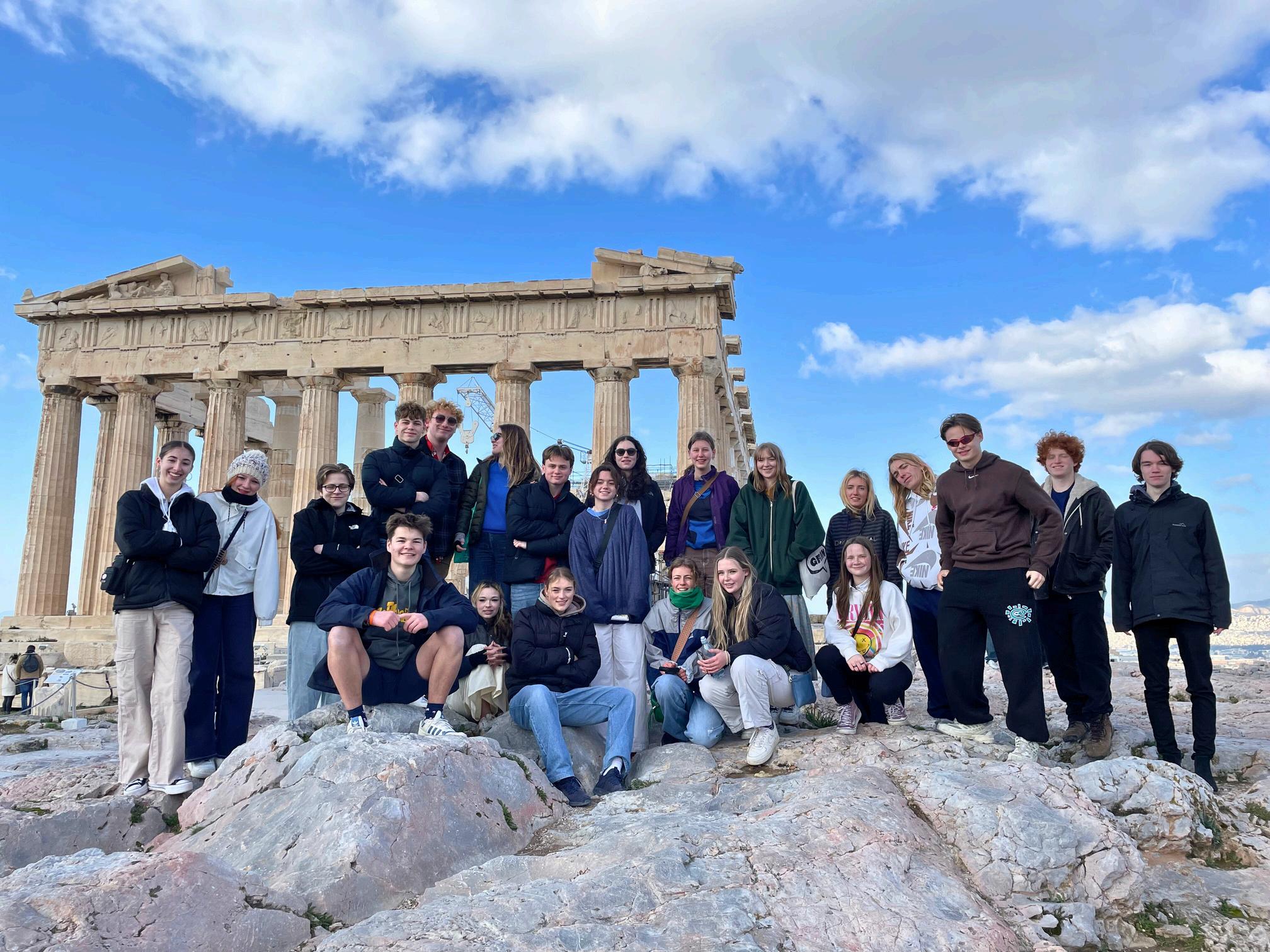
Minimum Grade 5 in GCSE English
You do not need to have studied Latin to study Classical Civilisation
Culture and the Arts (30%)
Greek Theatre
Through reading two tragedies, Sophocles’ Oedipus the King and Euripides’ Bacchae together with Aristophanes’ comedy Frogs, students will explore the significance of the central themes of gender, power and fate to both ancient and modern readers
Beliefs and Ideas (30%)
Love and Relationships
This component offers the opportunity for learners to recognise and relate to the passions, frustrations and delights of love in the ancient world. The ethical questions raised by these ideas are still of vital importance in the modern world and this unit will generate interesting and important discussions about love, desire, sex, sexuality and the institution of marriage We read extracts from the famous Greek lesbian writer Sappho and the comic seduction manual of the Roman poet Ovid as well as looking at the philosophies of Plato and Seneca and examining the role of women in ancient society.
The course is all taught in English by subject specialists and students consistently achieve very good results
The department runs annual overseas trips to Athens for Sixth Form.
Progression Opportunities
In 2022 the department facilitated two students to continue their classical learning in Oxbridge universities, and annually there are always a number of students going on to read classical subjects at universities
Classical subjects are recognised for the breadth of skills they develop. A quote from Reading University’s website states that: “Classics graduates are trained in clear thinking, research skills, diligence, independence, adaptability and the ability to understand people and situations in the world at large As such, they are eagerly sought after by employers”
Course Name: GCE Classical Civilisation Course Number: A2 H408
Students of English Literature at A level will of transferable skills, including basic writing construct cohesive arguments in response challenging texts and the ability to view text context and their reception
This English Literature course has been des you an in-depth knowledge of the two main comedy and tragedy This is a well-planned new course that will allow you to develop y and writing skills in a mature and perceptive be highly beneficial for your next steps In p course aspires to help its students build tra required for later life, including the ability to cohesive arguments that are critical and su build empathy through viewing texts within the reception and production of their respe periods, and to be confident in formulating viewpoints based on evaluating different opinions Throughout this two-year course, you will become wellversed in the contextual background and literary skills of several exceptional writers, making this A Level an excellent foundation for any post-18 literature study
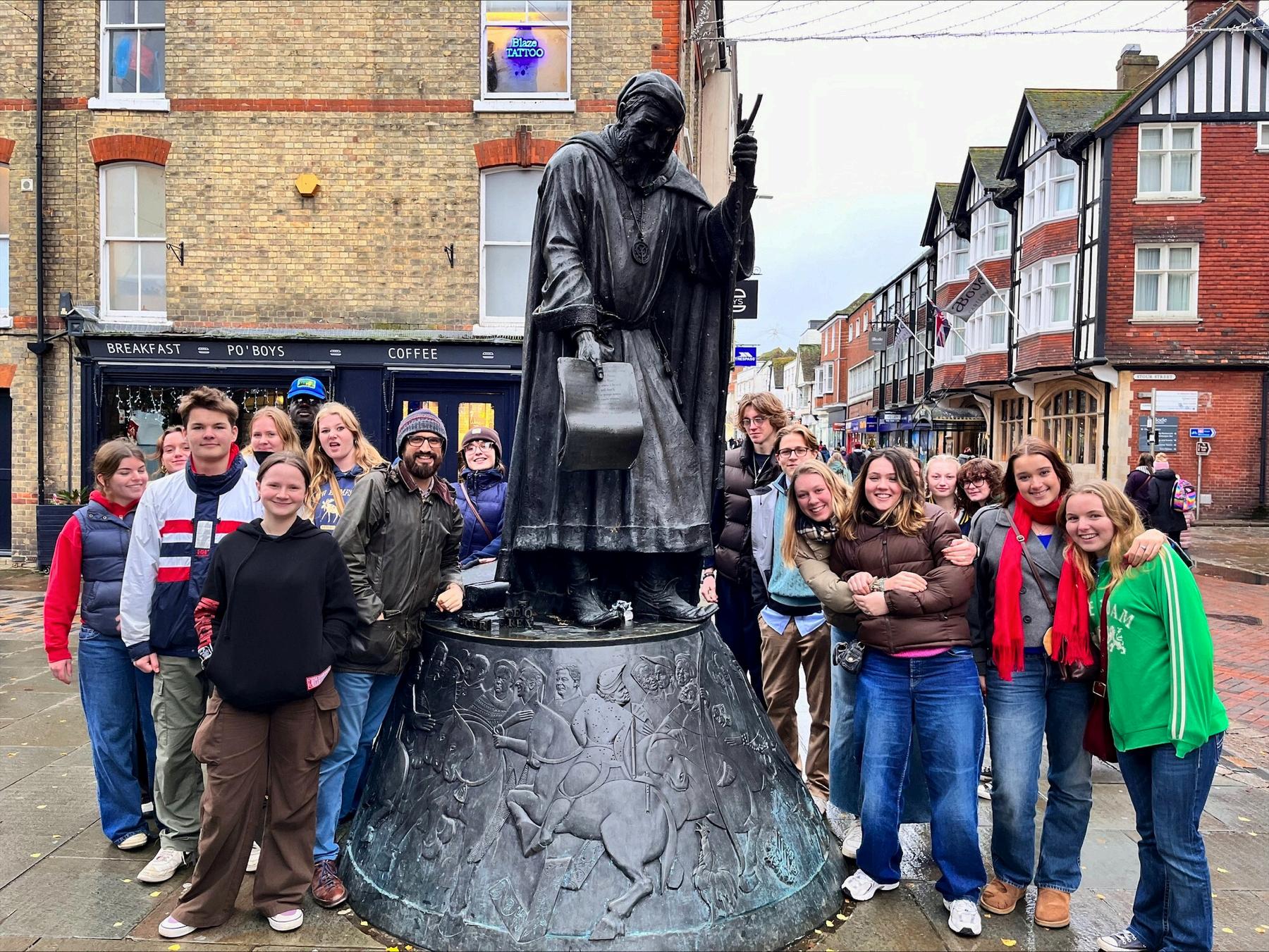
Minimum Grade 6 in GCSE English Literature and Language but Grade 7 in Literature is recommended
Over two years, you will study eight texts in total (six for the exam elements and two for the coursework element).
Component 1: Drama
Students study: one Shakespeare play and one other drama from either comedy or tragedy
Component 3: Poetry
Students study: poetic form, meaning and language a selection of post 2000 specified poetry: Poems of the Decade, and a specified range of poetry
Component 2: Prose
Students study: two prose texts from a chosen theme Compare 1 x Pre-1900 text and 1 x Post-1900 text
Component 4: Coursework
Students have a choice of two texts to study from poetry, drama, prose or literary non-fiction’
Gaining an A level in English Literature will enhance not only your knowledge of the literary heritage but also provide you with excellent communication skills - both written and oral You will be able to express your own ideas and opinions and to analyse and construct a persuasive argument The study of English Literature will complement any future studies in the arts, humanities, social sciences and law faculties at university. Those who study English at university can go on to careers in Media and Film, the Arts, Teaching, Journalism, Publishing and Editing, Information Technology, Business and much more
Course Name: GCE English Literature Course Number: A2 9ETO
A level Geography students will gain an appreciation of the physical and human world around them They will be able to develop and understand geographical processes on a range of temporal and spatial scales Through independent investigations they will develop and enhance a range of geographical skills and concepts. A desire for independent learning is nurtured through careful planning and engaging activities Key concepts which students are required to understand include systems, feedback, inequality, identity, globalisation, interdependence, mitigation and adaptation, sustainability, risk and resilience Students are taught to understand a wide range of geographical terms and concepts
The course consists of:
Year 12
1. Coastal systems and landscapes
2 Hazards
3 Changing places
Year 13
4 Water and carbon cycles
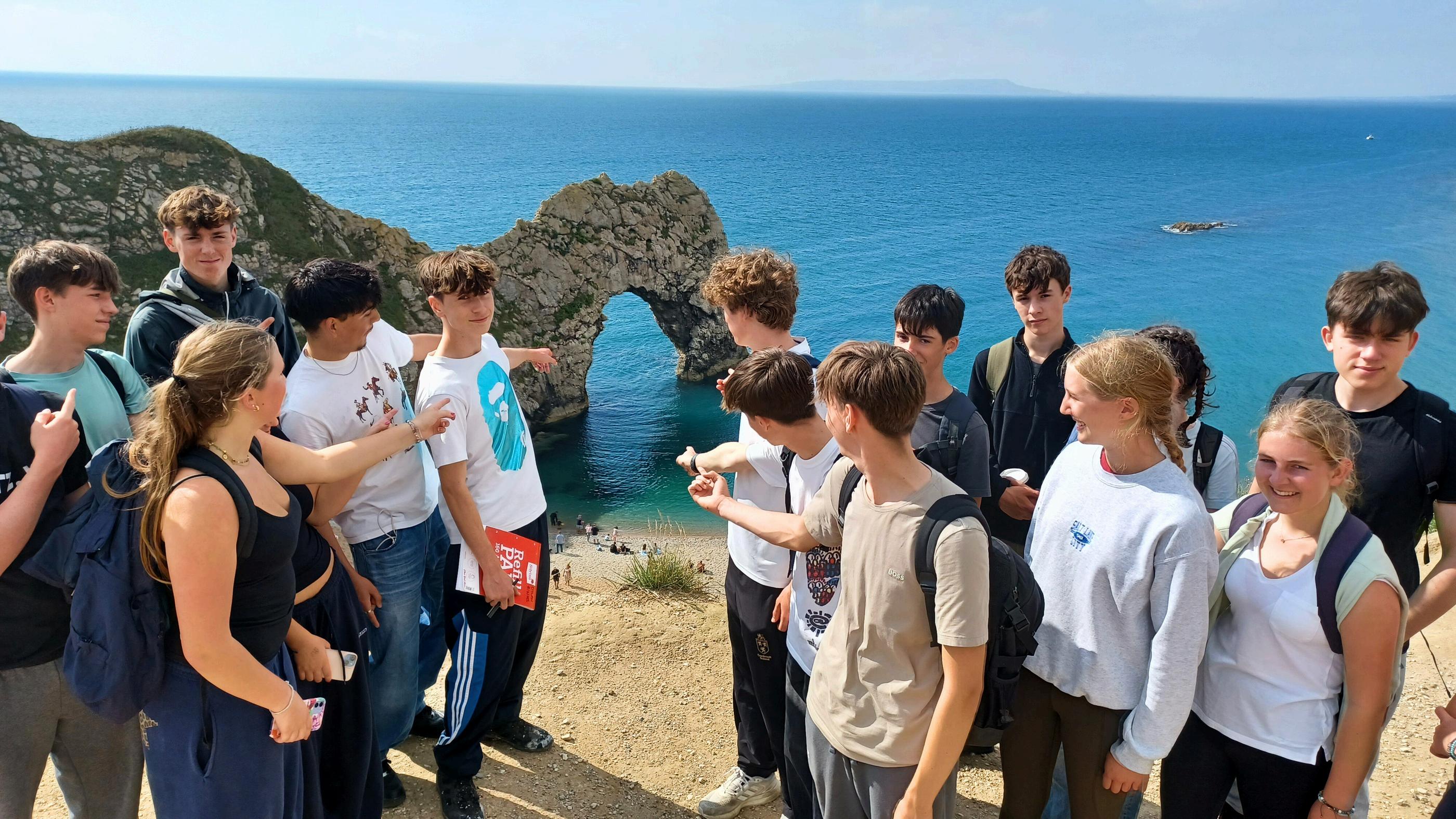
Minimum Grade 6 in GCSE Geography
5 Global systems and global governance
6 Contemporary urban environments
Students will also need to complete an Independent Investigation of between 3000 – 4000 words
Progression Opportunities
Top universities classify geography as an “effective preparation subject” for degree courses Whether you want to study Geography to degree level at University or are considering whether it is an appropriate course for A level, be secure in the knowledge that Geography is a useful subject; it acts as both a Science and Art, and is accepted by universities. It also recently scored very highly in a survey of British businesses as a subject which prepares students for the ‘World of Work’ Statistics show that compared with other subjects, Geographers are among the most employable The skills you use in your geographical studies make you of potential interest to a wide range of employers The close link between the subject and the world around us makes for a long and varied list of related careers. Those leaving university with a Geography degree can enter many areas of employment including management, administration, marketing, planning and financial work Geographers possess the abilities and skills that employers look for Michael Palin in 2011 commented that “A level Geography students hold the key to the world’s problems” The skills you use in your geographical studies make you of potential interest to a wide range of employers and not just teaching!
Course Name: GCE Geography
Course Number: 7037
The teaching of History has at its heart three key intentions Regarding knowledge and understanding, History promotes recall of facts and concepts, sequencing and chronology of key study units and topics and their application On understanding, we aim to articulate key concepts such as change and continuity, cause and consequence, significance, using evidence Equally important are literacy for learning and enquiry skills In the case of the latter this means bringing knowledge, understanding and structured writing together to demonstrate persuasive writing and intellectual curiosity
In the Early Modern and Later Modern courses knowledge and understanding are acquired from the challenges of breadth and depth studies, thematic studies and source and interpretive exercises Literacy for learning is instilled from the subject’s essay-based focus, an understanding of how to write extended pieces to thematic, long-term and short-term questions, writing coursework using undergraduate level material, and writing persuasively while recognising issues of controversy and debate Lastly, the skills of enquiry are taught by synthesising the widest range of skills and materials to produce well debated essays and extended coursework piece, genuinely understanding the interplay between historians and history, and sifting through competing arguments to arrive at nuanced judgements
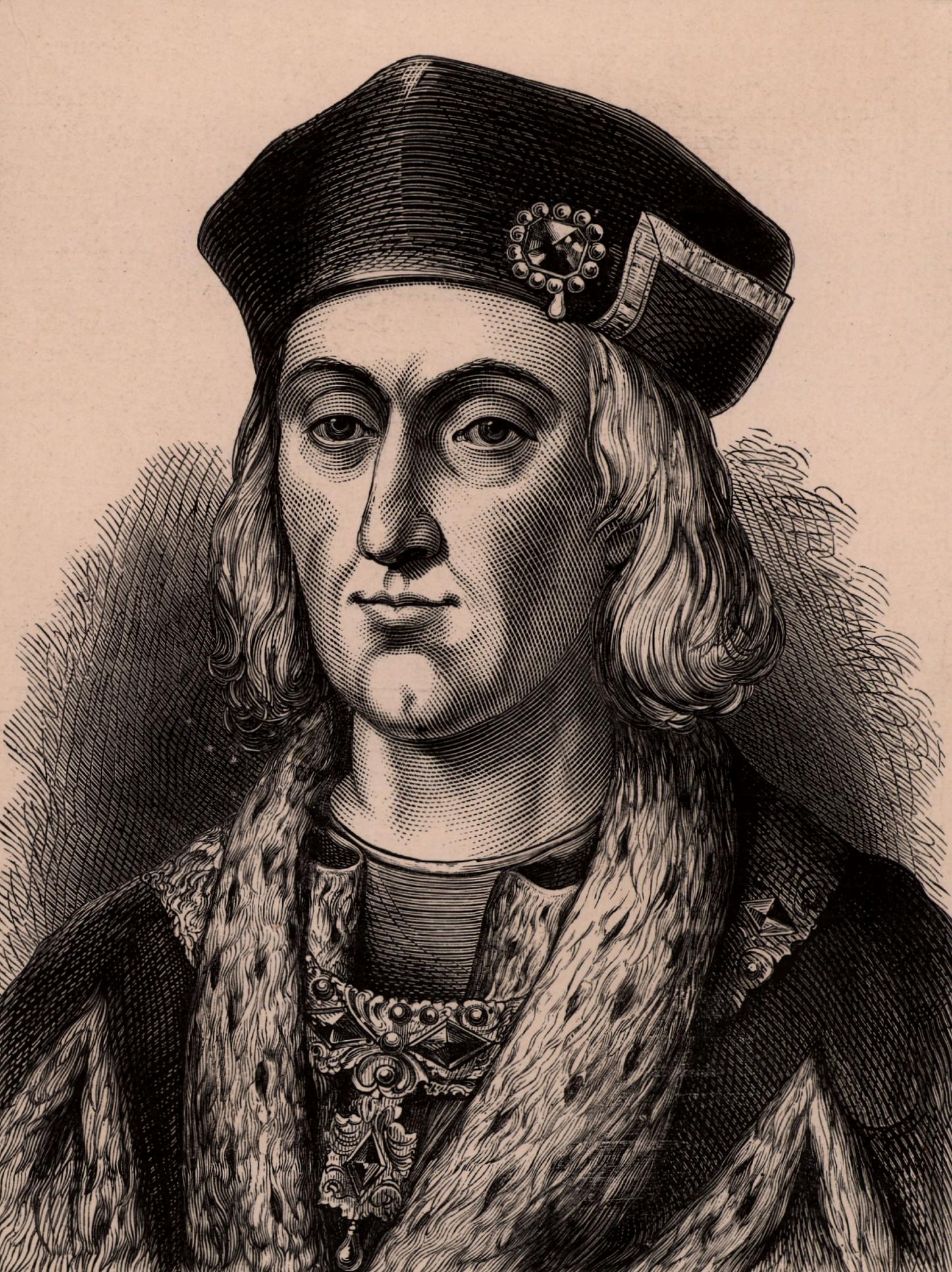
At AS level the Early Modern course contains both English and European history elements centring on the period of the sixteenth and seventeenth centuries In common with the Later Modern course there are two examined papers in the first year, followed by one examination and one coursework paper
The course consists of:
AS History (studied in Year 12)
Unit 1: England 1509-1603: authority, nation and religion
Unit 2: Luther and the German Reformation c1515-55
A2 History (studied in Year 13)
Unit 3: Lancastrians, Yorkists and Henry VII, 1399-1509
Unit 4: Coursework on the European Witchcraze c1580-1650
Progression Opportunities
The course will also help you develop the skills, understanding and knowledge that many employers across lots of industries are looking for.
You could take this course to complement other advanced level courses or to prepare for higher education in History or related subjects such as English, American Studies, Politics, Archaeology or more general courses
With further training, you could go into a job related to history by seeking employment in areas of heritage, in education such as a teacher and in a wide range of professions such as the law and the media
Course Name: GCE History
Course Number: 9H10
The teaching of History has at its heart three key intentions Regarding knowledge and understanding, History promotes recall of facts and concepts, sequencing and chronology of key study units and topics and their application On understanding, we aim to articulate key concepts such as change and continuity, cause and consequence, significance, using evidence Equally important are literacy for learning and enquiry skills In the case of the latter this means bringing knowledge, understanding and structured writing together to demonstrate persuasive writing and intellectual curiosity
In the Early Modern and Later Modern courses knowledge and understanding are acquired from the challenges of breadth and depth studies, thematic studies and source and interpretive exercises Literacy for learning is instilled from the subject’s essay-based focus, an understanding of how to write extended pieces to thematic, long-term and short-term questions, writing coursework using undergraduate level material, and writing persuasively while recognising issues of controversy and debate Lastly, the skills of enquiry are taught by synthesising the widest range of skills and materials to produce well debated essays and extended coursework piece, genuinely understanding the interplay between historians and history, and sifting through competing arguments to arrive at nuanced judgements

Minimum Grade 6 in GCSE History
The focus of the Later Modern course will examine the trials and tribulations of Britain and Europe as they moved forward into the twentieth century In common with the Early Modern course there are two examined papers in the first year, followed by one examination and one coursework paper
The course consists of:
AS History (studied in Year 12)
Unit 1: In search of the American Dream: the USA c1917-96
Unit 2: South Africa, 1948-94: from apartheid state to ‘rainbow nation’
A2 History (studied in Year 13)
Unit 3: The British experience of warfare, c1790-1918
Unit 4: Coursework on post-war East Germany
Progression Opportunities
The course will also help you develop the skills, understanding and knowledge that many employers across lots of industries are looking for.
You could take this course to complement other advanced level courses or to prepare for higher education in History or related subjects such as English, American Studies, Politics, Archaeology or more general courses
With further training, you could go into a job related to history by seeking employment in areas of heritage, in education such as a teacher and in a wide range of professions such as the law and the media
Course Name: GCE History
Course Number: 9H10
In the Politics course knowledge and understanding are acquired from the study of recent political events and structures both UK and globally, conceptual understanding including core ideologies and global theories, and contextual knowledge and understanding of current affairs.
Literacy for learning is instilled from the subject’s essaybased focus, understanding how to write extended pieces to analytical and evaluative questions, writing persuasively while recognising issues of controversy and debate, and understanding how to integrate material such as concepts and political thinkers to support judgements Lastly the skills of enquiry are taught by synthesising the widest range of skills and materials to produce well debated essays, using an understanding of political structures and ideas to allow genuine curiosity and judgement in current affairs and sifting through competing arguments to arrive at nuanced judgements

Minimum Grade 6 in GCSE History, Geography and English Literature
Unit 1: UK Politics Students study: democracy parties elections voting the media
Unit 3: Political Ideas Students study: conservatism liberalism socialism feminism
Unit 2: UK Government Students study: constitution Parliament Prime Minister executive
Unit 4: Comparative Politics Students study: global politics
With a GCE in Politics, you can progress to higher education courses such as degrees in Politics, International Politics/Relations and Political Science as well as to degrees in related subjects such as History, Geography, Economics and Social Policy.
The study of politics can lead to a variety of careers within areas such as journalism and broadcasting, management, publishing, local government, public policy and policy research, interest groups, local government and the voluntary sector, as well as within politics itself.
Course Name: GCE Politics Course Number: 9PL0
Religious Studies seeks to explore the key ultimate questions that we face as humans, for example, did I exist in a previous life, what does it mean to be human, how do I live a good life and why do people suffer? From a national and global context, A level Religious Studies seeks to extend and deepen students’ knowledge and understanding of philosophy, ethics and developments in thought This is a fresh style of religious studies and a complete contrast to GCSE
The course explores key developments in human thought and follows their journey through to contemporary alternative perspectives
The aim is for students to present relevant arguments from a well-reasoned and robust position
appreciate and appraise the nature of different world views reflect critically on those searching questions relating to life and society
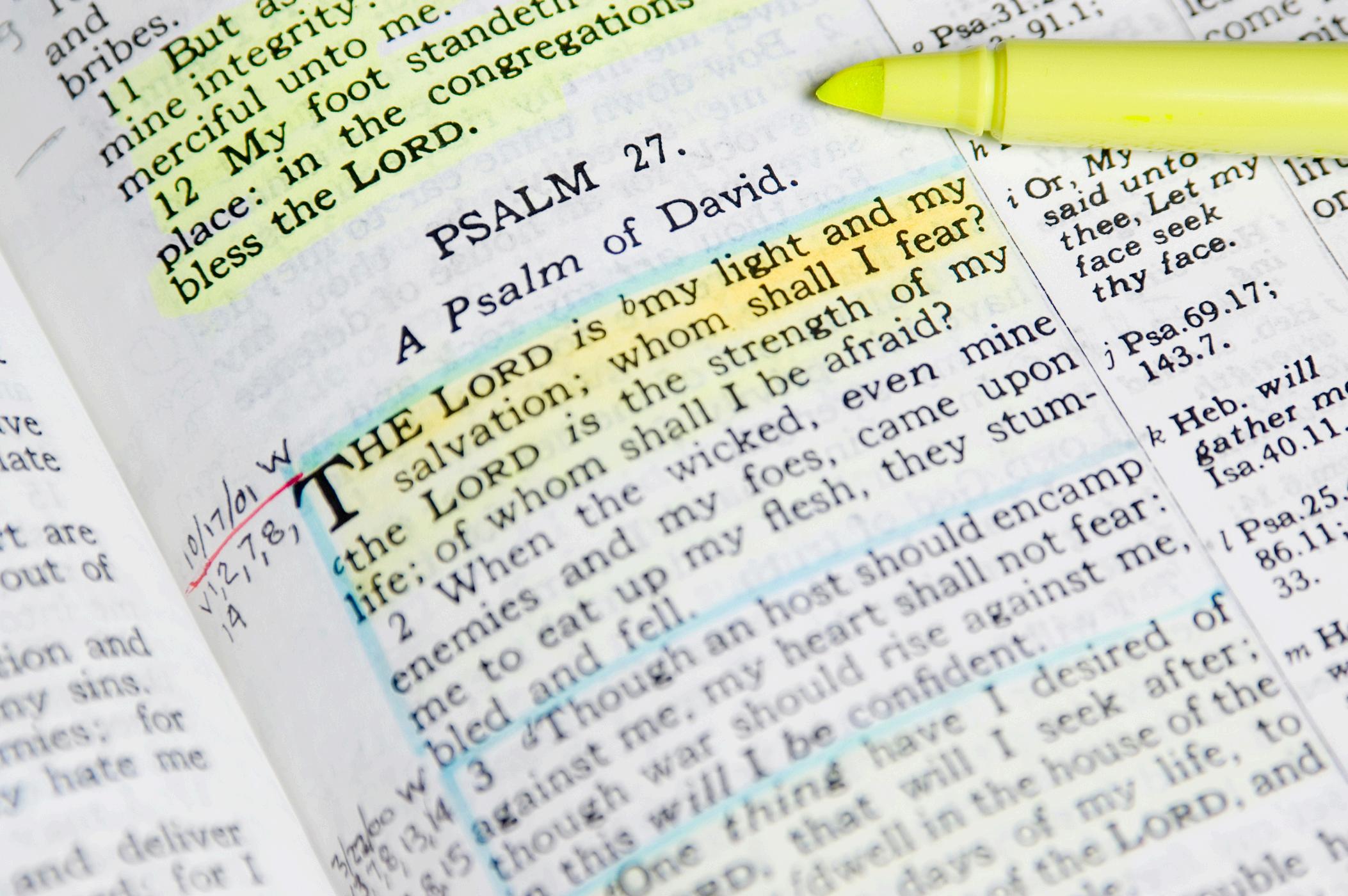
Entry Requirements
Minimum Grade 6 in GCSE English and/or another Humanities subject.
Ancient philosophical influences
The nature of the soul, mind and body
Arguments about the existence or non-existence of God
The nature and impact of religious experience
The challenge for religious belief of the problem of evil
Ideas about the nature of God
Issues in religious language
Progression Opportunities
Normative ethical theories
The application of ethical theory to two contemporary issues
Ethical language and thought
Debates surrounding the significant idea of conscience
Sexual ethics and the influence on ethical thought
Developments in Christian Thought Religious beliefs, values and teachings, their interconnections and how they vary historically and in the contemporary world
Sources of religious wisdom and authority
Practices which shape and express religious identity, and how these vary within a tradition
Significant social and historical developments in theology and religious thought
Key themes related to the relationship between religion and society
This course has strong links with other subjects, such as History and English, although it also contains elements of sociology, politics, psychology, classics and anthropology By studying Philosophy and Ethics, a wide variety of subject options in further education are opened up. In fact, the Russell Group universities count this course as one of the most valuable GCE qualifications to have In terms of the subject’s use for future careers, according to a recent Times article ‘Philosophy is, in commercial jargon, the ultimate "transferable work skill"’ Whilst this qualification is extremely useful in a wide range of careers, it is particularly well suited to professions such as medicine, law and education, as the skills it teaches you is the ability to critically analyse and evaluate sources, and argue to a logical conclusion, yet at the same time being tolerant and respectful towards the views of others
Course Name: GCE Religious Studies Course Number: H573/02
As well as boosting your French language to higher level, the course focuses on a wide ra regarding the society and the culture of Fran French-speaking countries The approach is how French-speaking society has been shap and culturally, and how it continues to chang
So, if you want to continue to improve your more realistic context and learn more about fascinating cultural and historical heritage of the course for you!
Depending on interest and availability, stude able to study AS French as their 4th subject they have meet 78 points or more overall Th examination would take place at the end of
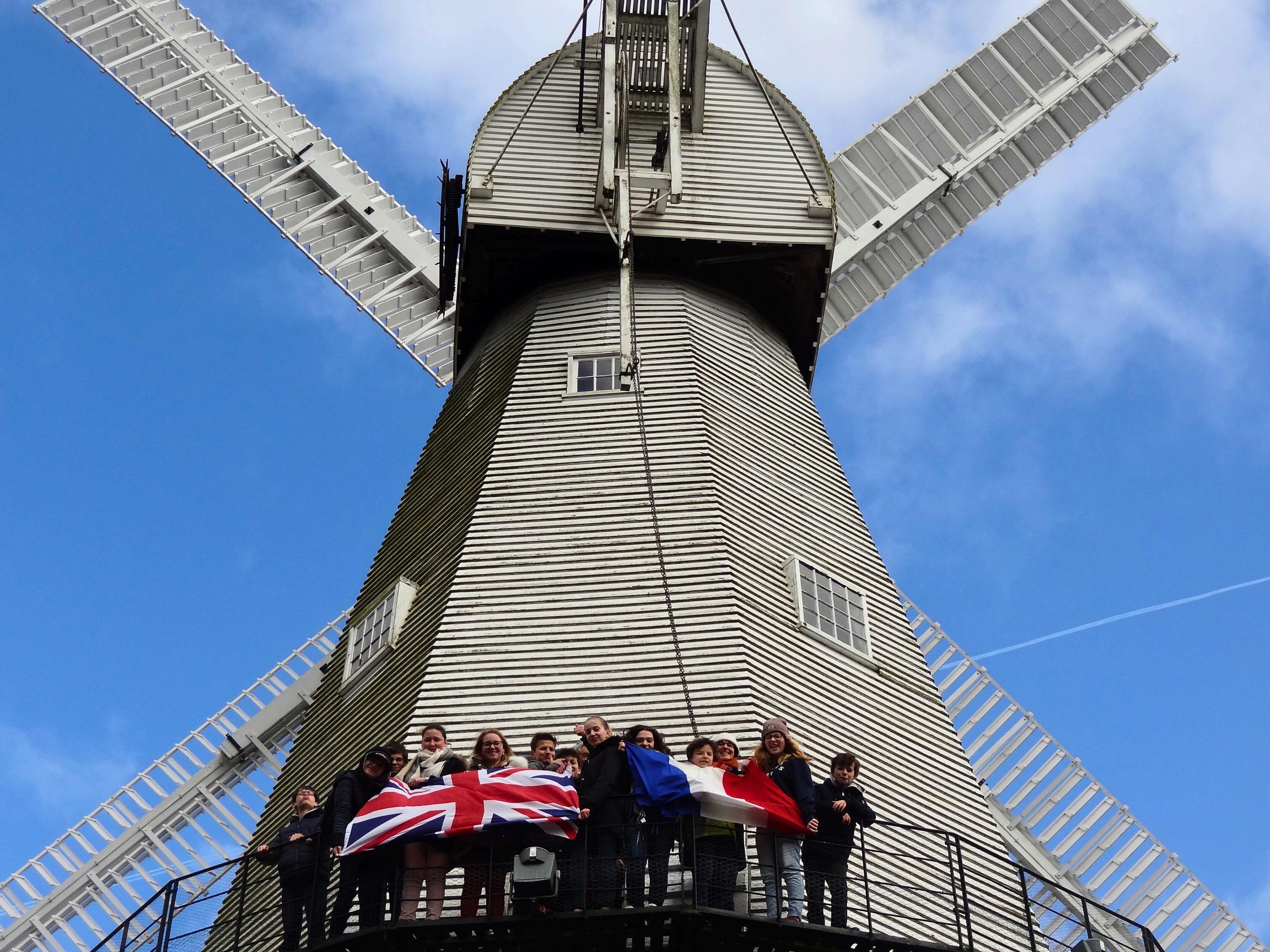
Minimum Grade 7 in GCSE French
Theme 1: Aspects of French-speaking society: current trends
The changing nature of family (La famille en voie de changement)
The ‘cyber-society’ (La « cyber-société »)
The place of voluntary work (Le rôle du bénévolat)
Theme 3: Aspects of French-speaking society: current issues
Positive features of a diverse society (Les aspects positifs d'une société diverse)
Life for the marginalised (Quelle vie pour les marginalisés?)
How criminals are treated (comment on traite les criminels)
Theme 2: Artistic culture in the French-speaking world
A culture proud of its heritage (Une culture fière de son patrimoine)
Contemporary francophone music (La musique francophone contemporaine)
Cinema : the 7th art form (Cinéma : le septième art)
Theme 4: Aspects of political life in the Frenchspeaking world
Teenagers, the right to vote and political commitment (Les ados, le droit de vote et l’engagement politique)
Demonstrations, strikes – who holds the power? (manifestations, grèves – à qui le pouvoir?)
Politics and immigration (La politique et l’immigration)
This is an extensive and demanding course which will give students a real edge, as languages are highly valued by universities and employers alike.
French is a great asset beyond education, opening doors to many countries and cultures as well as being a greatly sought-after skill in the job market
Course Name: GCE French Course Number: 7651/7652
As well as boosting your Spanish language higher level, the course focuses on a wide ra regarding the society and the culture of Spa Spanish-speaking countries The approach how Spanish-speaking society has been sha and culturally, and how it continues to chang
If you want to continue to improve your Spa realistic context and learn more about the fa cultural and historical heritage of Spain and America, this is the course for you!
Depending on interest and availability, stude able to study AS Spanish as their 4th subjec they have meet 78 points or more overall Th examination would take place at the end of
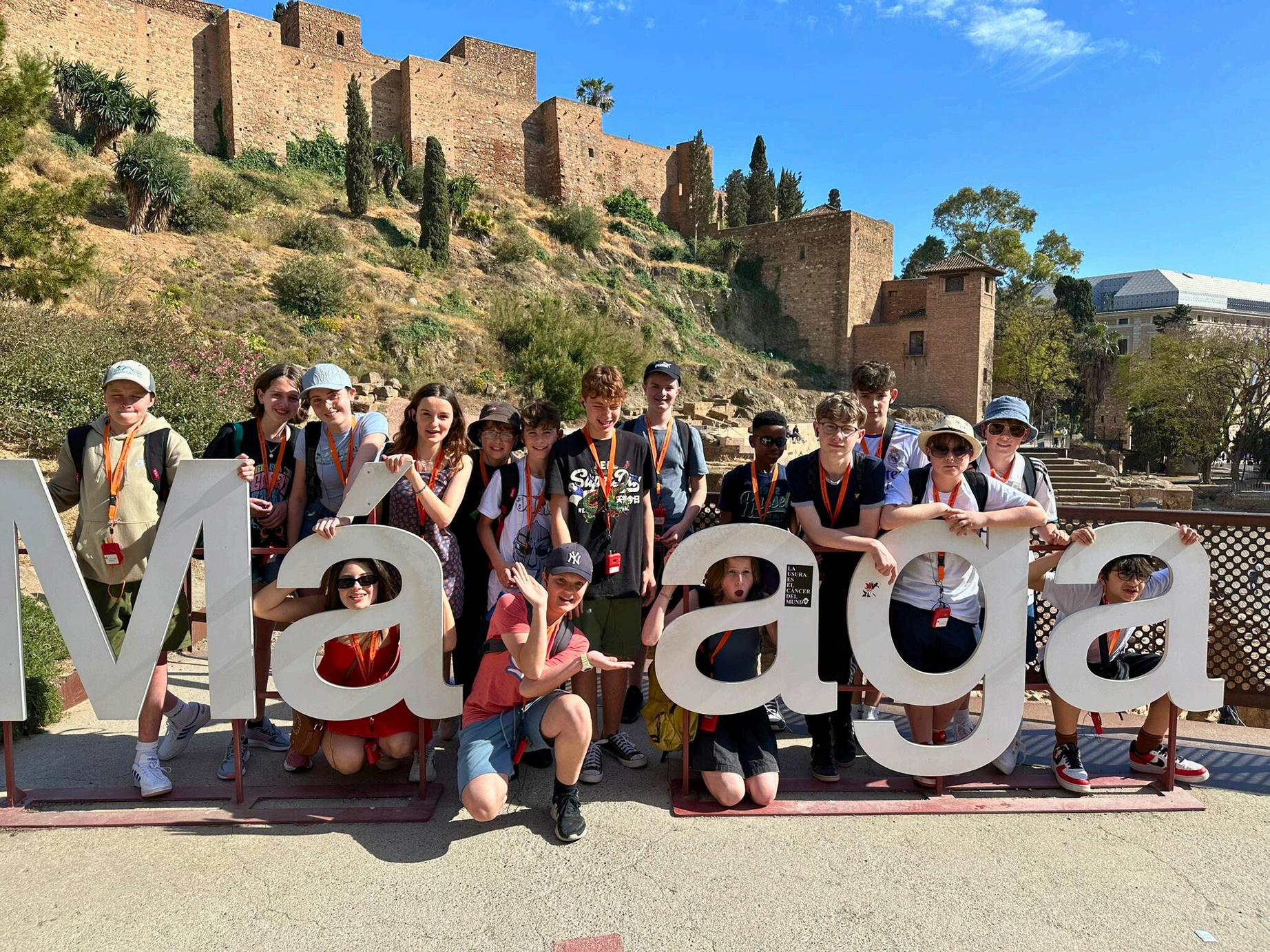
Minimum Grade 7 in GCSE Spanish
Theme 1: Aspects of Hispanic society
Modern and traditional values (Los valores
tradicionale y modernos)
Cyberspace (El ciberespacio)
Equal rights (La igualdad de los sexos)
Cinema and literature:
Theme 2: Artistic culture in the Hispanic world
Modern day idols (La influencia de los ídolos)
Spanish regional identity (La identidad regional en España)
Cultural heritage (El patrimonio cultural)
In Year 12, the students will study Pedro Almodovar’s film ‘Volver’
Theme 3: Multiculturalism in Hispanic society
Immigration (La inmigración)
Racism (El racismo)
Integration (La convivencia)
Cinema and literature:
Theme 4: Aspects of political life in the Hispanic world
Today's youth, tomorrow's citizens (Jóvenes de hoy, ciudadanos del mañana)
Monarchies and dictatorships (Monarquías y dictaduras)
Popular movements (Movimientos populares)
In Year 13, the students will study ‘Como agua para chocolate’ by Laura Esquivel
Progression Opportunities
This is an extensive and demanding course which will give students a real edge, as languages are highly valued by universities and employers alike
Spanish is a great asset beyond education, opening doors to Hispanic countries and cultures as well as being a greatly sought-after skill in the job market.
Course Name: GCE Spanish
Course Number: 7691/7692
Mathematics at A level seeks to promote confidence, foster enjoyment and provide a strong and secure foundation for progress to further study. Students extend their mathematical skills and connect different areas of mathematics, including transferring knowledge to other fields. They will use the knowledge acquired to make mathematical and reasoned decisions and deductions and to apply their understanding to solve problems Skills acquired include logical reasoning, proof and communication, analysis and modelling in real-life situations Students are encouraged to discover links in other academic subjects, read related articles and use technology that helps them discover the beauty of the subject. Students must take increasing responsibility for their own learning evaluation of their mathematical development This challenging course offers an excellent foundation to many degree courses, apprenticeships and a lifelong love of all things maths related.
The course is challenging, but support and extension are offered to ensure that every student is in a position to maximise their potential. It should be noted the course builds on the content in the GCSE Mathematics and a strong foundation in this knowledge will be required to be successful The department has a booklet available prior to the start of the course which will help students ensure that they are confident with this material
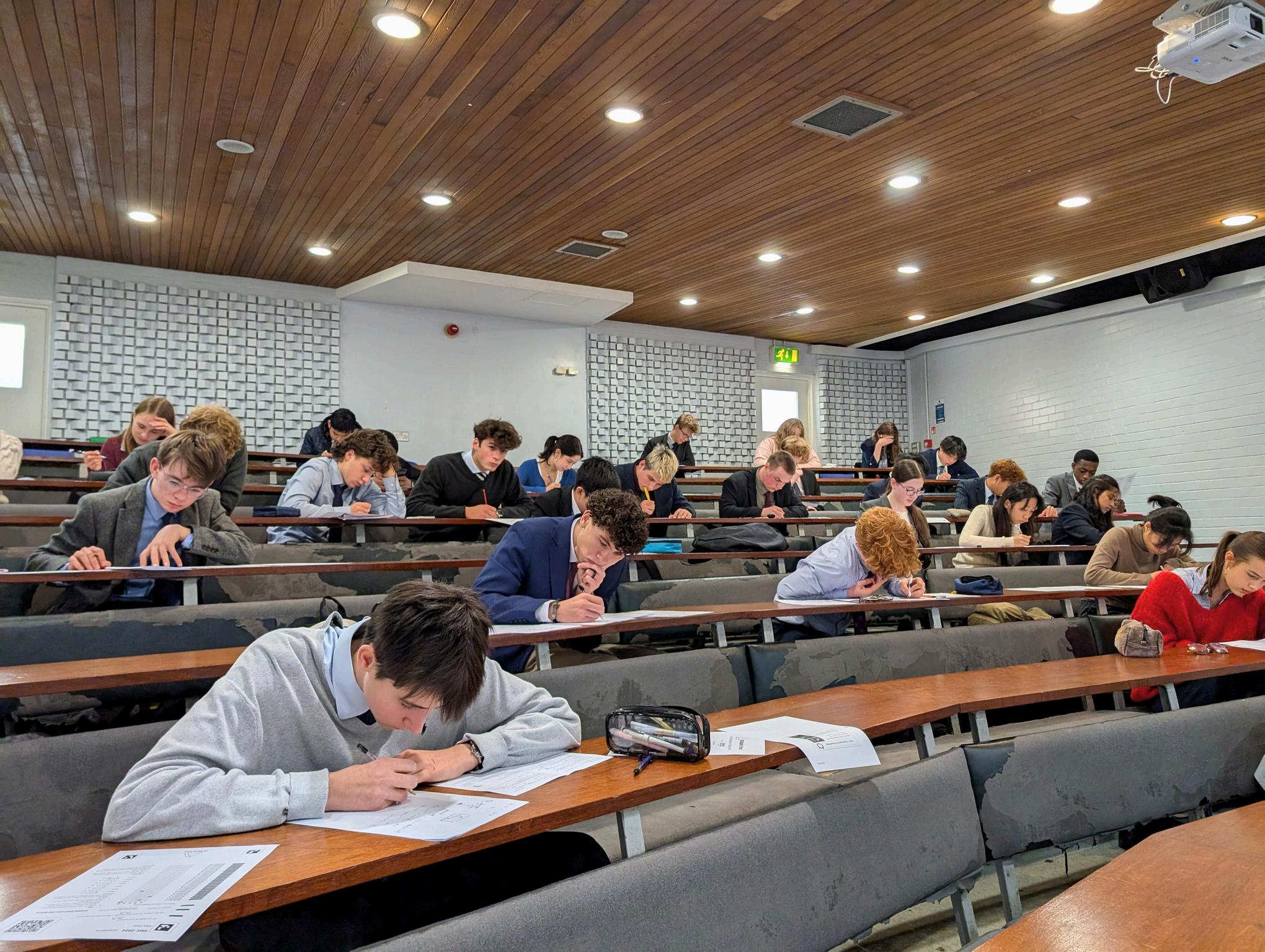
In the Mathematics A level course, all content is prescribed; there are no optional modules or content.
The A level examinations for the course will comprise of 3 papers, each 2 hours long
Paper 1: Pure Mathematics 1
Topics include: proof, algebra and functions, coordinate geometry, sequences and series, trigonometry, exponentials and logarithms, differentiation, integration, vectors
Paper 2: Pure Mathematics 2
Topics include: proof, algebra and functions, coordinate geometry, sequences and series, trigonometry, differentiation, integration, numerical methods
Paper 3: Statistics and Mechanics
Topics include: Sampling, presenting and interpreting data, probability, statistical distributions, hypothesis testing, quantities and units in mechanics, kinematics, forces, Newton’s laws and Moments
You could use this course to support entry to higher education in areas of Mathematics, and related fields of study such as Electronics, Economics, Physics or other more general higher education courses The course also helps you develop the skills, understanding and knowledge that many employers across lots of industries are looking for, especially in the economic and engineering sectors
Course Name: Level 3
Course Number: 9MA0
Note that this course can only be taken in conjunction with the A level Mathematics course
This is a challenging course and a passion for the subject is necessary – along with sound GCSE results We have chosen to follow the Edexcel Further Mathematics course for A level, students wishing to take this option will continue to be taught the Mathematics A level course along with other students
Unlike the Mathematics A level course, there is an element of choice for some of the taught content Those modules that we have selected are marked with an asterisk below and these are subject to change year-onyear but gives an indication of our choice for the coming year
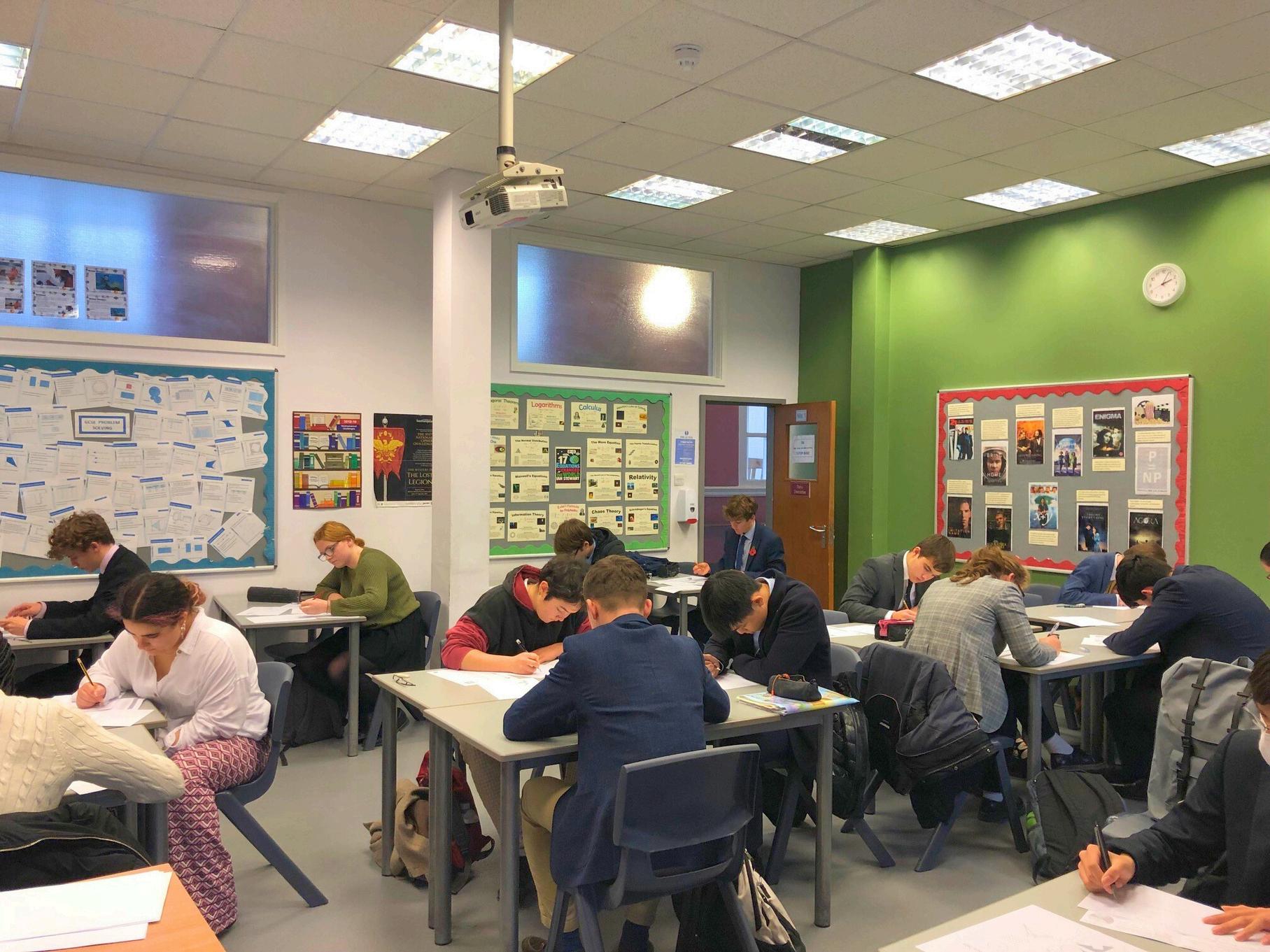
Minimum Grade 8 in GCSE Mathematics
The A level examinations will comprise of 4 papers, each 1 hour 30 minutes long
Paper 1: Core Pure Mathematics 1
Topics include: Proof, Complex numbers, Matrices, Further algebra and functions, Further Calculus, Further vectors
Paper 2: Core Pure Mathematics 2
Topics include: Complex numbers, further algebra and functions, Further Calculus, Polar coordinates, Hyperbolic functions, Differential equations
Paper 3: 3C Further Mechanics 1 *
Topics include: Momentum and Impulse, Collisions, Centres of mass, Work and energy, Elastic strings and springs
Paper 4: 4C Further Pure Mathematics 1 *
Topics include: Vectors, Conic Sections, Inequalities, t-formula, Taylor Series, Methods in Calculus, Numerical Methods, Reducible Differential Equations
Progression Opportunities
Further Maths course is obviously an ideal subject for those wishing to pursue Mathematics at university Furthermore, those interested in Engineering at competitive universities are advised to consider Further Mathematics alongside Mathematics and Physics This might form part of a 4 A level program
Course Name: Level 3
GCE Further Mathematics Course Number: 9FM0
The OCR Biology A level course is aimed at challenging learners and preparing them for the eventuality of becoming independent in the ‘real wide world’. It is a course suitable for people who are curious about all aspects of biology from how the body works to ecology, as well as how the world around us can influence decisions The aims of the course are to encourage students to:
Develop essential knowledge and understanding of different areas of biology, including developing an interest in further study and careers in biology
Appreciate how society makes decisions about scientific issues and how the sciences contribute to the success of the economy and society
Develop and demonstrate a confidence in using a variety of practical, mathematical and problem-solving skills that will open many doors to further education or employment
AS Biology (studied in Year 12)
Module 1: Development of Practical Skills
Module 2: Foundations in Biology
Cells, biological molecules, DNA, enzymes, cell membranes, cell division and cell organisation
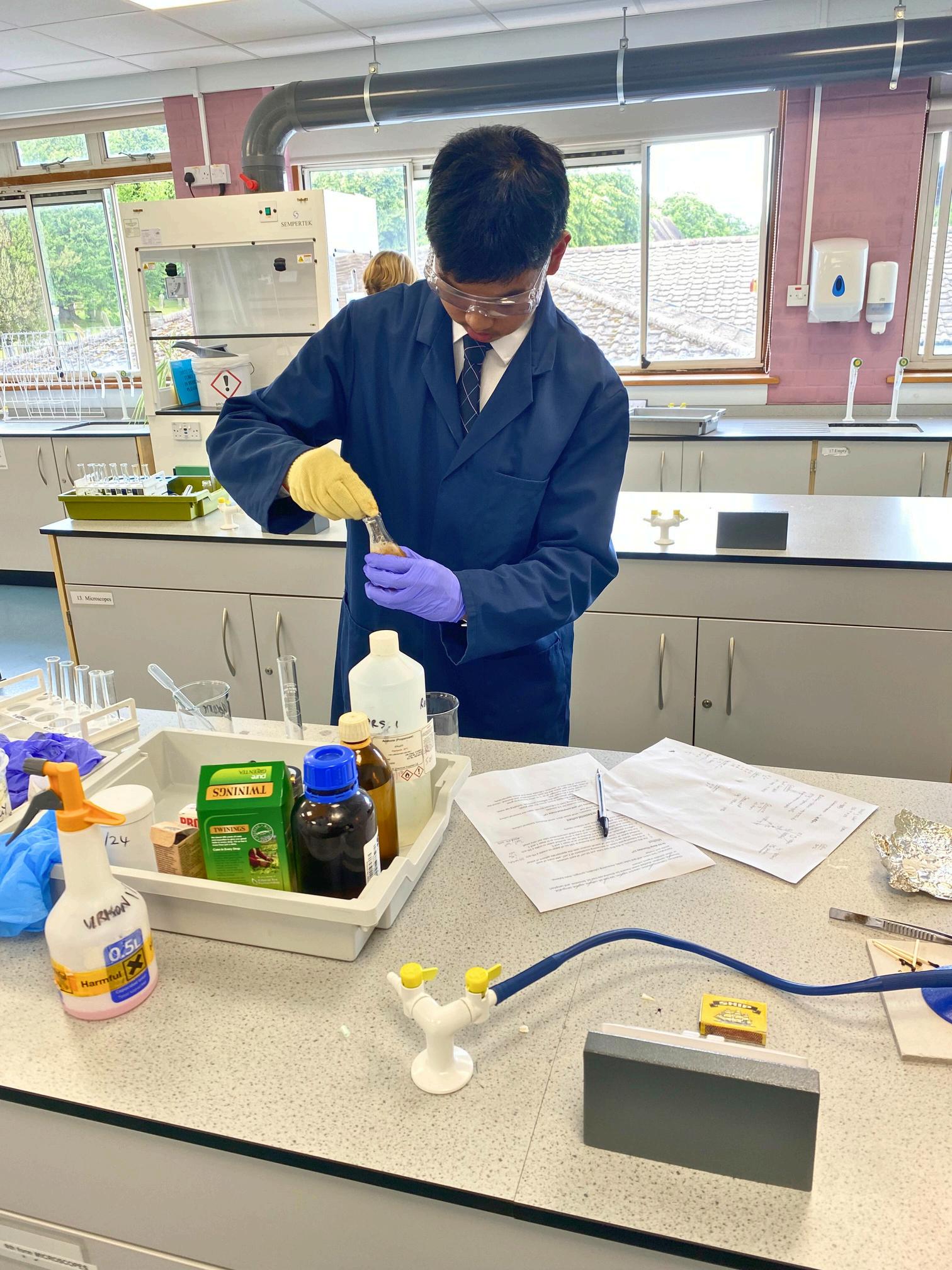
Minimum Grade 7 in GCSE Biology or Grade 7 in the Biology component of the Combined Science award
Module 3: Exchange & Transport
Transport in animals and plants, including breathing and circulation
Module 4: Biodiversity, Evolution & Disease Diseases, disease prevention, biodiversity, classification and evolution
A2 Biology (studied in Year 13)
Module 5: Communication, Homeostasis & Energy
Homeostasis, excretion, nerves, hormones, animal responses, photosynthesis and respiration
Module 6: Control, Genomes & Environment
Cellular control, inheritance, genomes, cloning, biotechnology, ecosystems and sustainability
Progression Opportunities
Many employers and universities are looking for students who study Biology It is a challenging but very rewarding course that will enhance your skills and opportunities. The range of biological subjects that you can further study is vast It includes medical related fields, but also sports science, physiotherapy, psychology, pharmacology, agriculture, the environment, applied genetics, biochemistry and ecology It is a very useful course that complements many other subjects including physics, chemistry, physical education, geography and mathematics.
Chemistry A level is a flexible, content-led course and the specification is divided into broad topics covering different key concepts of Chemistry. Our students will develop an understanding of physical, organic and inorganic chemistry, competence in practical skills, confidence in applying mathematical and problem-solving skills, an interest and enthusiasm for chemistry and its application in further studies and careers
The teaching of practical skills is integrated into theory lessons for all relevant topics and skills are assessed both through written papers (15%) and through the Practical Endorsement consisting of at least 12 required practical activities. This is a practical subject and involves a relatively high percentage of experimental work There is a strong mathematical approach to the subject and 20% of written paper marks involve mathematical skills, number and logic.
The course is split into 6 teaching modules Modules 1-4 are assessed at AS level in two written exams At A level all 6 modules are assessed in three exams and the final grade is awarded along with a pass/fail in the practical endorsement
A minimum of Grade 6 in GCSE Maths is required for students to ensure success on the course

Minimum Grade 7 in GCSE Chemistry or Grade 7 in the chemistry component of the Combined Science award
Minimum Grade 6 in GCSE Mathematics
Module 1
Development of practical skills in chemistry
Module 2
Foundations in chemistry
Module 3
Periodic table and energy
Module 4
Core organic chemistry
Module 5
Physical chemistry and transition elements
Module 6
Organic chemistry and analysis
Progression Opportunities
The course will help you to develop the basic skills, understanding and knowledge that many industries are looking for A good chemist is analytical, organised, methodical and good at problem-solving These skills are in demand across a broad range of disciplines and chemists are sought after in the world of finance, law and in management. Chemistry is often essential for degree courses such as medicine, dentistry and veterinary science, or those related to chemistry like pharmacy, pharmacology, chemical engineering and even geology Chemistry complements a number of other subjects including Biology, Physics, Mathematics and Earth Sciences.
Course Name: GCE Chemistry
This qualification is linear, where students sit all their exams and submit all their non-exam assessment at the end of the course. The course is made up of 4 elements: paper 1, paper 2, NEA analysis and practical
Paper 1 – Factors affecting participation in physical activity and sport
Applied anatomy and physiology
Skill acquisition
Sport and society
Paper 2 – Factors affecting optimal performance in physical activity and sport
Biomechanical movement
Sport psychology
Sport and society and the role of technology in physical activity and sport
It is highly recommended that students should perform regularly as part of a team/club (an activity from the specification) as this equates to 15% of the final grade)
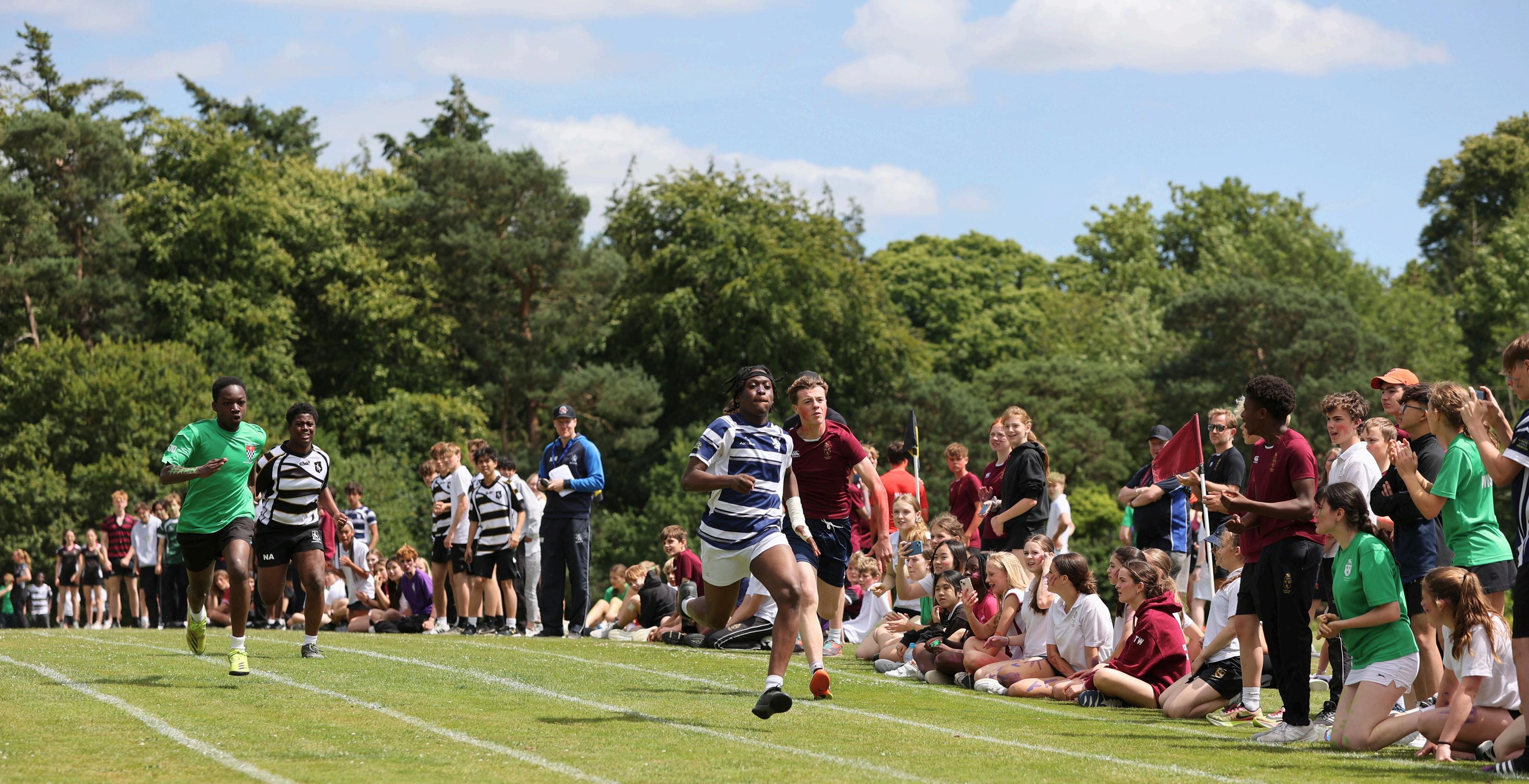
Minimum Grade 6 in GCSE Physical Education and Biology
How each paper is assessed:
Written exam: 2 hours per paper
105 marks per paper
35% of A-Level per paper
Section A: multiple choice, short answer and extended writing (35 marks) – per paper
Section B: multiple choice, short answer and extended writing (35 marks) – per paper
Section C: multiple choice, short answer and extended writing (35 marks) – per paper
Non-exam assessment (NEA) - Practical performance in a physical activity and sport
This NEA will consist of one activity taken from the approved list Learners can be assessed in the role of performer or coach Students will also produce an analysis of performance (written or verbal)
Internal assessment, external moderation
90 marks in total
30% of A-Level
Progression Opportunities
In recent years, these external examinations have seen students achieve results that reflect their hard work and dedication Many Physical Education students have successfully moved on to study subjects like Sports Science or Physiotherapy at university, often with aspirations to become Physiotherapists, Physical Education Teachers or to work with professional sports teams in roles such as Sports Conditioning Coaches or Sports Nutritionists With the continued growth of professional sport, the demand for Sports Scientists is also on the rise
Course Name: GCE Physical Education Course Number: 7582
The AS course in Year 12 comprises the first half of the full A level It provides a smooth progression from GCSE and largely develops topics already familiar to students, but pushes these ideas further and in new directions We also venture into the field of Particle Physics, studying completely new ideas and touching gently on the weirdness of the quantum realm
A level Physics is an exploration into the world about us that builds upon interest and skills developed during the GCSE course The subject aims to produce students who are confident to learn independently A large number of students go on to study physics or related degrees such as engineering at Russell Group universities (or similar) or go on to a related apprenticeship
The remaining material in the A level course in Year 13 deals with a variety of unfamiliar and powerful ideas which increasingly look at the universe at its most fundamental level There is some choice of study in the final section of the course that allows students to tailor their learning towards their intended career or areas of personal interest
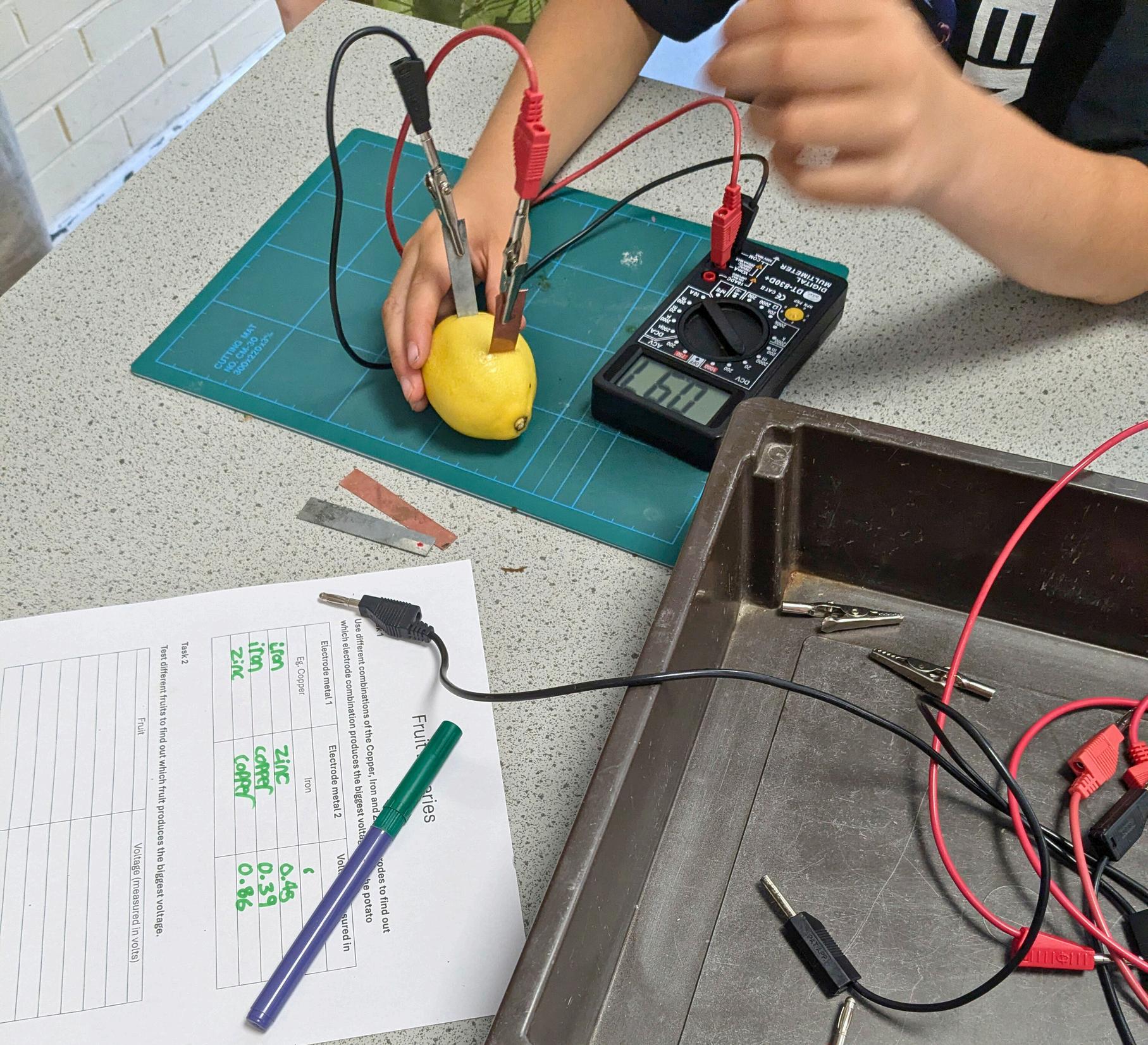
Minimum Grade 6 in GCSE Physics and Grade 7 in GCSE Mathematics
AS Physics (studied in Year 12)
Particles and Radiation
Mechanics and Materials
Waves
Electricity
Additional material for A level Physics (studied in Year 13) Fields
Further Mechanics
Thermal Physics
Nuclear Physics
Plus, an optional topic chosen from: Astrophysics; Medical Physics; Engineering Physics; or Turning Points in Physics
Practical skills remain a key part of both the AS and A level Physics course and your understanding of practical skills and data analysis is assessed in the theory papers
There is no coursework exam, but if you continue to A2 then your teacher must make a pass or fail assessment of your practical skills This is certificated alongside your grade on the theory paper, and university entry requirements may include achieving the pass grade
The Examiner expects 99% of students to gain the practical pass grade and this is readily achievable if you take a consistently organised approach to practical activities and reports
A level Physics students are equipped with skills and knowledge that transfer to a range of careers You could choose to seek employment in a wide variety of areas such as engineering, medicine, forensics, sports science, geophysics, aeronautics, nanotechnology or research. If you intend to continue studying at university level, Physics A level can lead to a host of degree courses such as photonics, engineering, architecture, mathematics, actuarial science, computing, medicine and a large variety of science related courses Physics graduates are highly sought after in industry and in the financial world (physics is rocket science, after all )
A level Psychology teaches students how to systematically study human behaviour and mental processes. The course requires students to develop, evaluate and debate arguments on theories and studies in Psychology Students become critical thinkers who are able to analyse data and consider the ethics behind experimental research Perhaps most importantly, Psychology students learn to apply their psychological knowledge to real-life settings and scenarios
This course allows students an insight into human behaviours and the methods of studying them There are key themes that are compulsory for all students to cover which include:
Social influence, memory, attachment, psychopathology, biopsychology, approaches, debates and research methods.
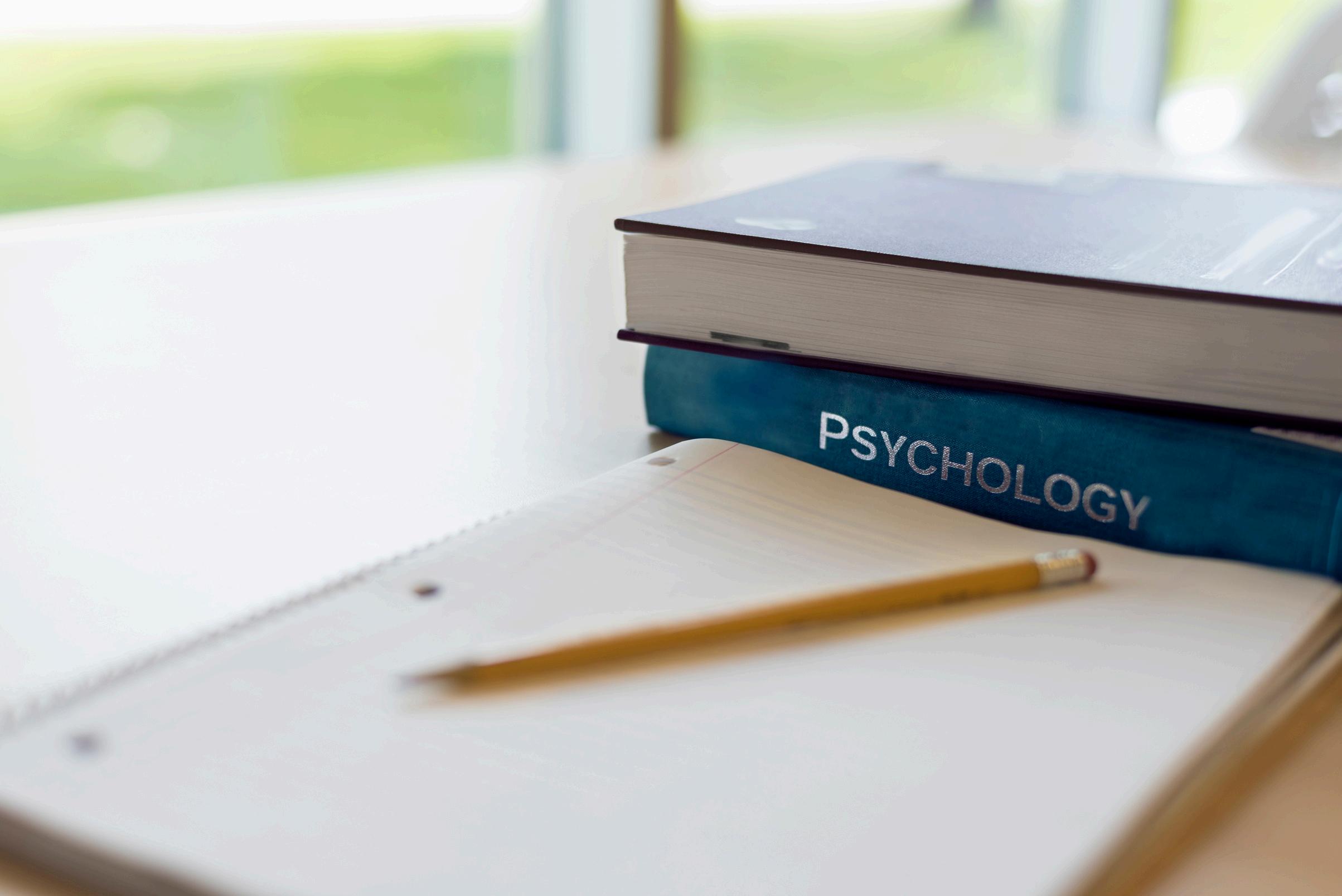
In Year 13 there are a range of optional topics where we teach one option from block 1, 2 and 3
A minimum of Grade 5 in Maths and Biology
Minimum Grade 6 in English Language
Option 1
Gender
Relationships
Cognition
Option 2
Schizophrenia
Eating behaviours
Stress
Option 3
Aggression
Forensic Psychology Addiction
It should be noted that mathematics features throughout the course where students are required to manipulate data, draw graphs, put numbers into equations and interpret both descriptive and inferential statistics.
The 2-year course exam structure is:
Three x 2-hour exams
Paper 1: (33%) 96 marks
Social Influence, Memory, Attachment and Psychopathology
Paper 2 (33%) 96 marks
Approaches in Psychology, Biopsychology and Research Methods
Paper 3 (33%) 96 marks
Issues and Debates, 3 option topics
Progression Opportunities
Students can continue onto a number of degree/career pathways from Psychology as it bridges the science/humanity gaps Many students go on to study psychology, counselling, physiotherapy, nursing, occupational health, speech therapy and social work. Psychology also provides transferable skills helping into career pathways such as management, business, research and teaching
Course Name: GCE Psychology
Course Number: 7182
The EPQ offers opportunities for students to develop and improve their learning and performance as critical, reflective and independent students. Students develop and apply decision-making, problem-solving skills and extend their skills in planning, research, critical thinking, analysis, synthesis, evaluation and presentation
The EPQ has proved to be popular with students It provides an opportunity for students to extend their abilities beyond the A-level syllabus and pursue individual interests. It allows students to embark on a largely selfdirected project with an emphasis on skill development where students take responsibility for the choice and design of an individual project Projects are founded on researched-based critical analysis and presented in the form of an academically referenced report, an artefact or a performance
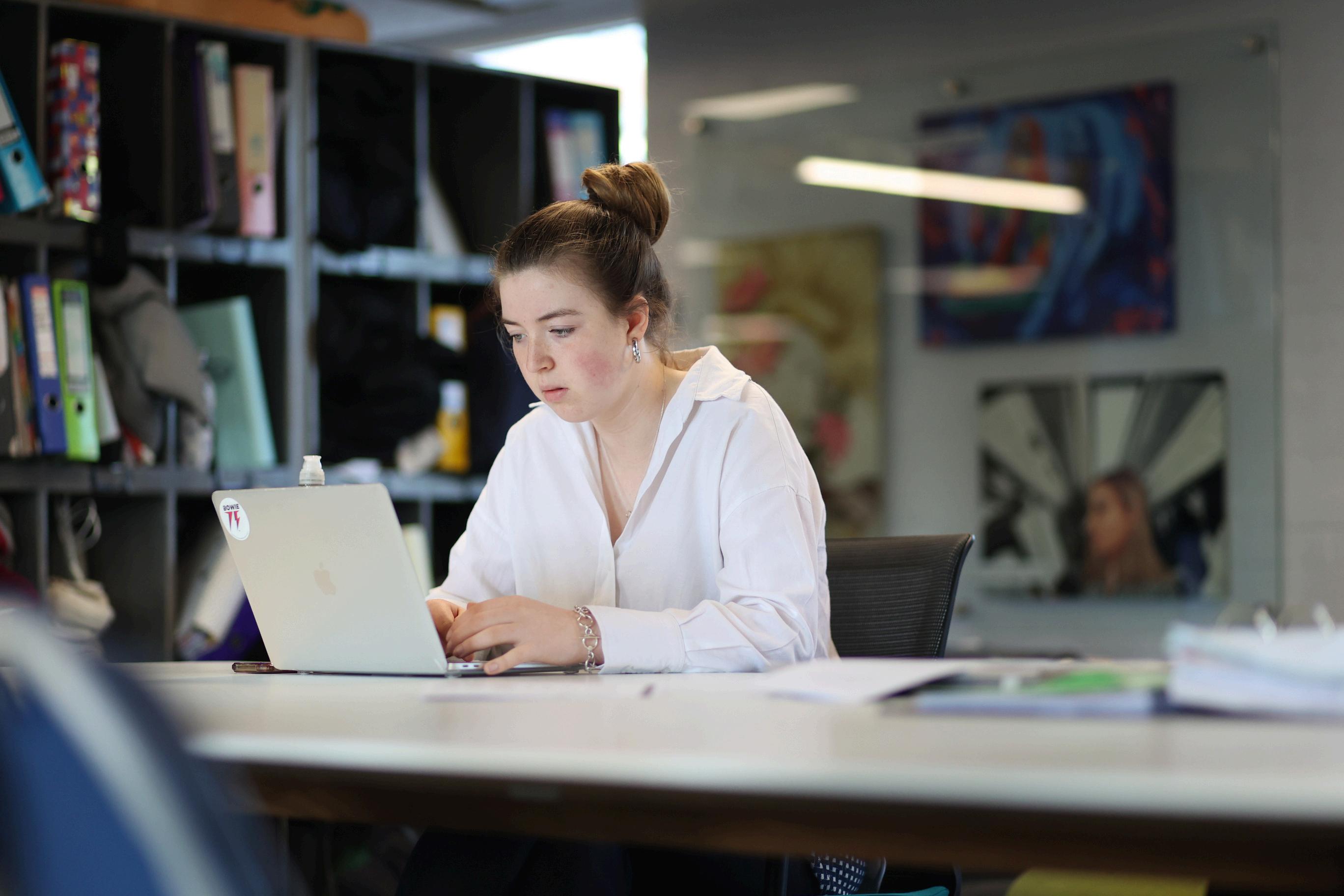
The EPQ is higher than an AS in terms of UCAS points being worth half of the points of an A level and is graded A* - E
Please note it is not possible to undertake 4 A levels together with an EPQ
GCSE points exceeding a total of 70
The course consists of:
A 12-month period of largely independent study starts in the Autumn term of Year 12 and finishes in the Autumn term of Year 13 Students are supported through their project with a taught skills programme to cover key skills required and are matched to a supervisor who offers guidance through the process. Students are required to:
Choose an area of interest to research and draft a title/project aims for formal approval
Independently plan, research and refine their project focus and title
Complete researched-based critical analysis and present as an academically referenced report
Deliver a presentation to a non-specialist audience
Evidence of all stages of project development and decision making in the form of a production log
Students can use their EPQ learning experiences to support their aspirations for further study and career development Skills developed through the EPQ enable students to stand out in their university applications, provide an excellent foundation for study at university and are highly transferable to employment for future careers Recognition of the study skills acquired from the EPQ, can result in reducing the level of a university offer, give an application preference on highly selective courses over students who do not have an EPQ, contribute to points for students applying on total points achieved and provide a focus for content within a personal statement and for interview discussion.
SIXTH FORM ENTRY FROM SEPTEMBER 2026
